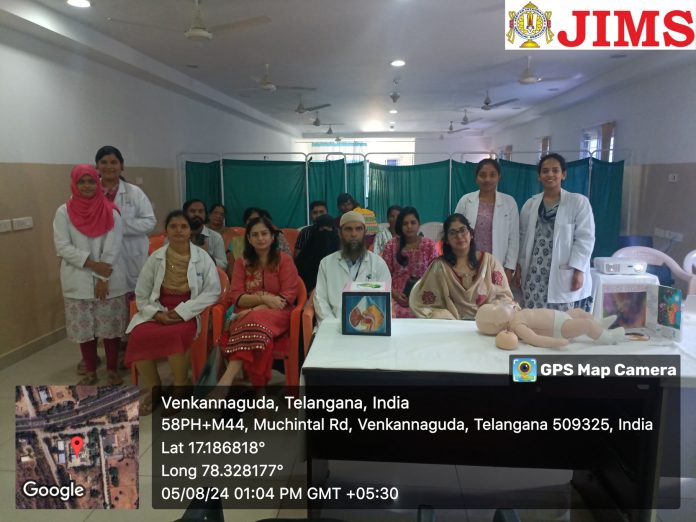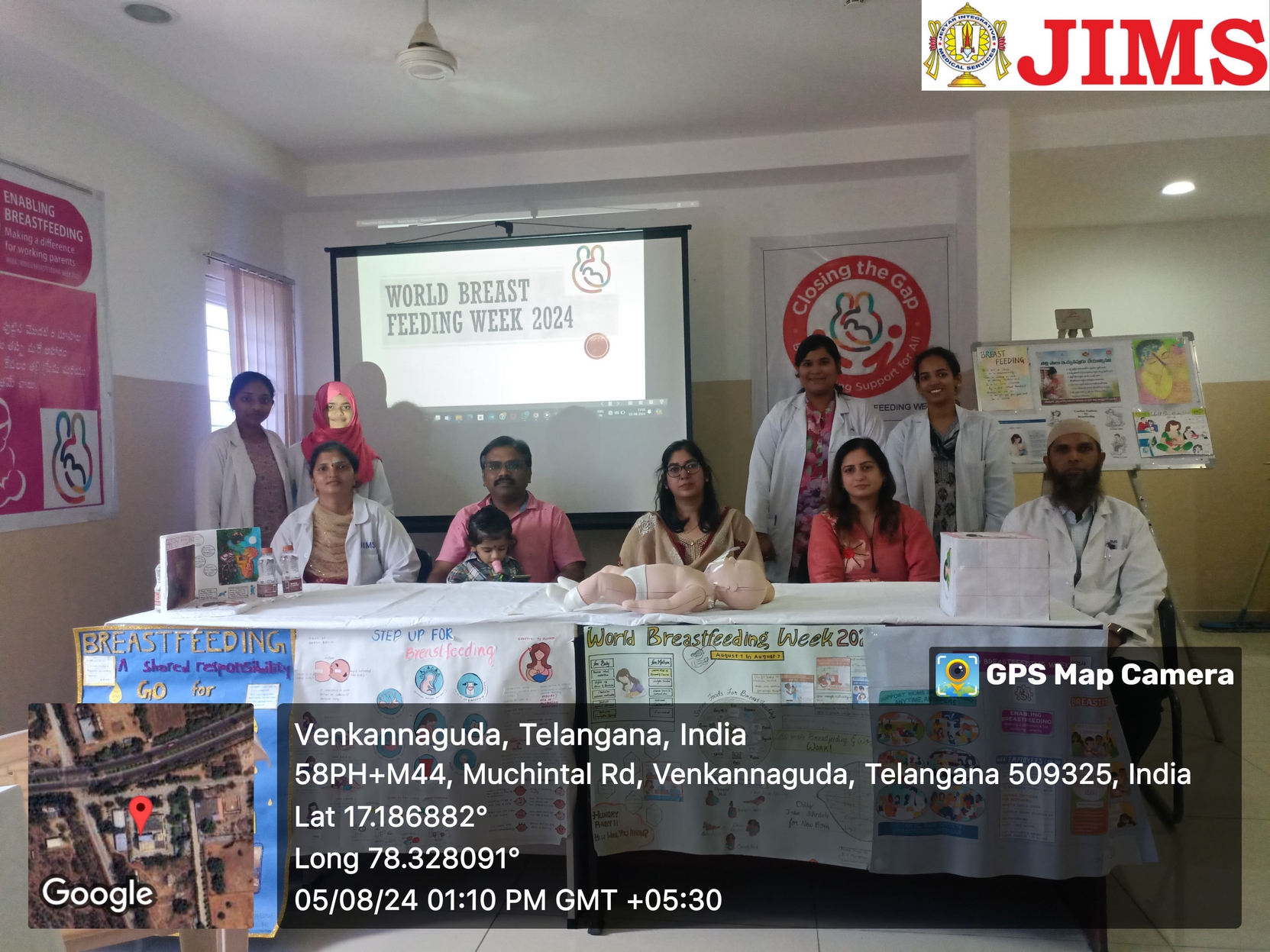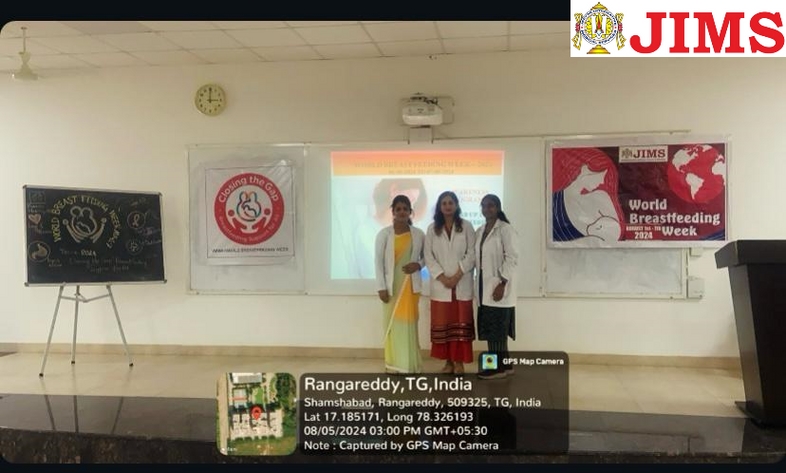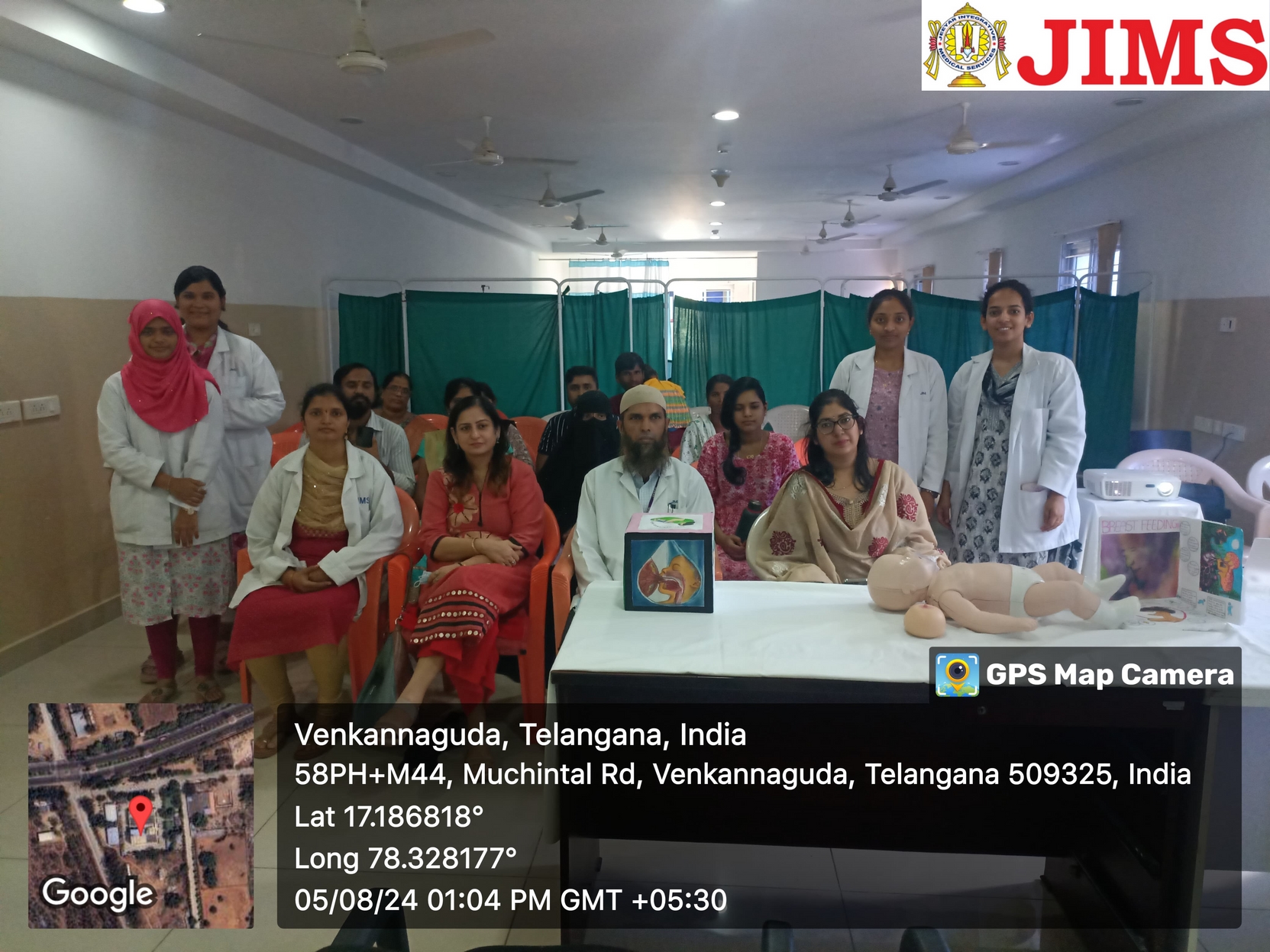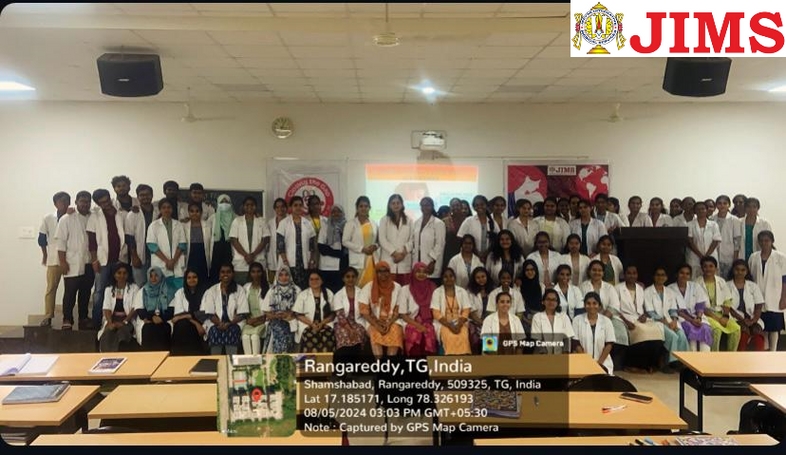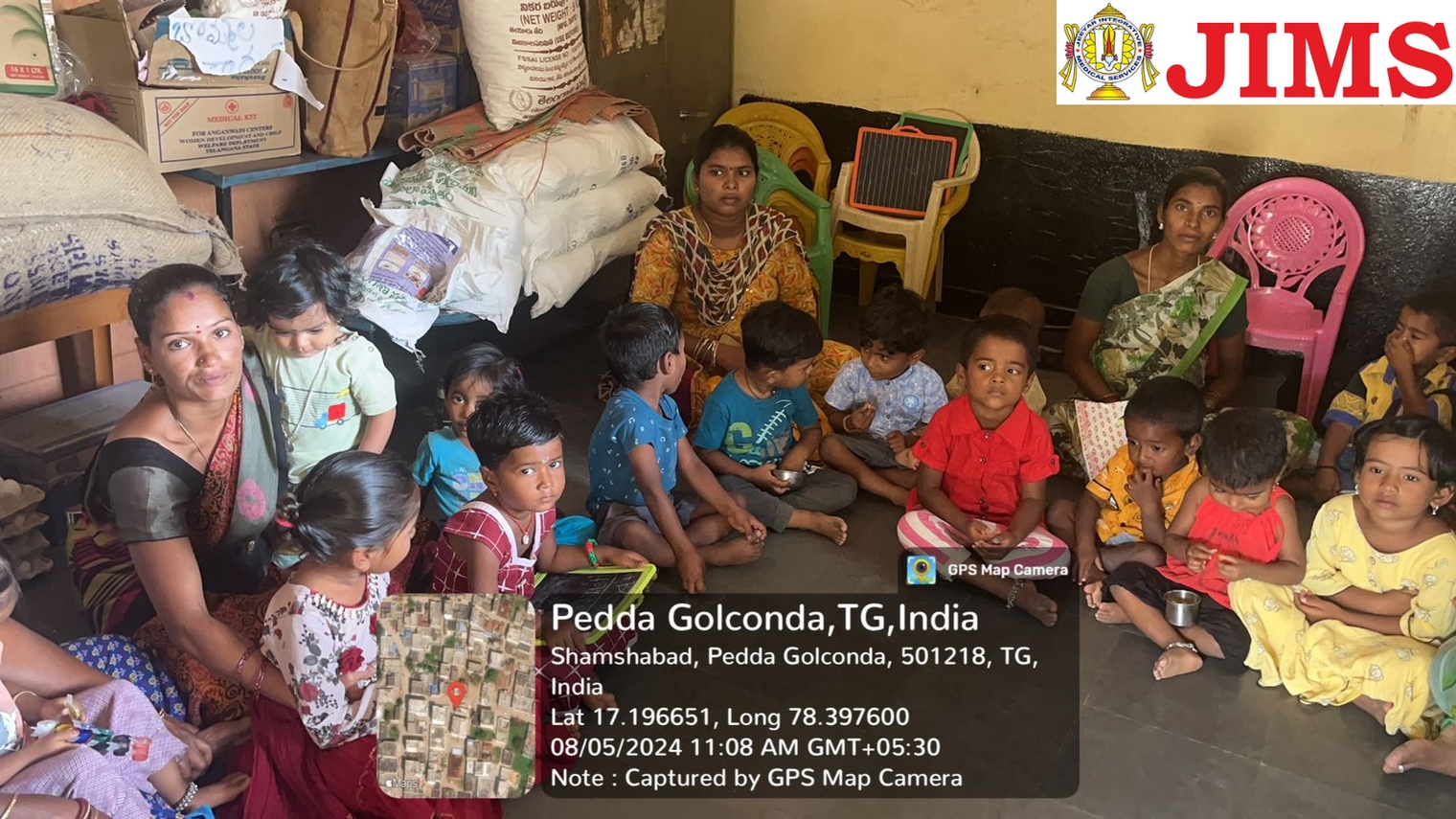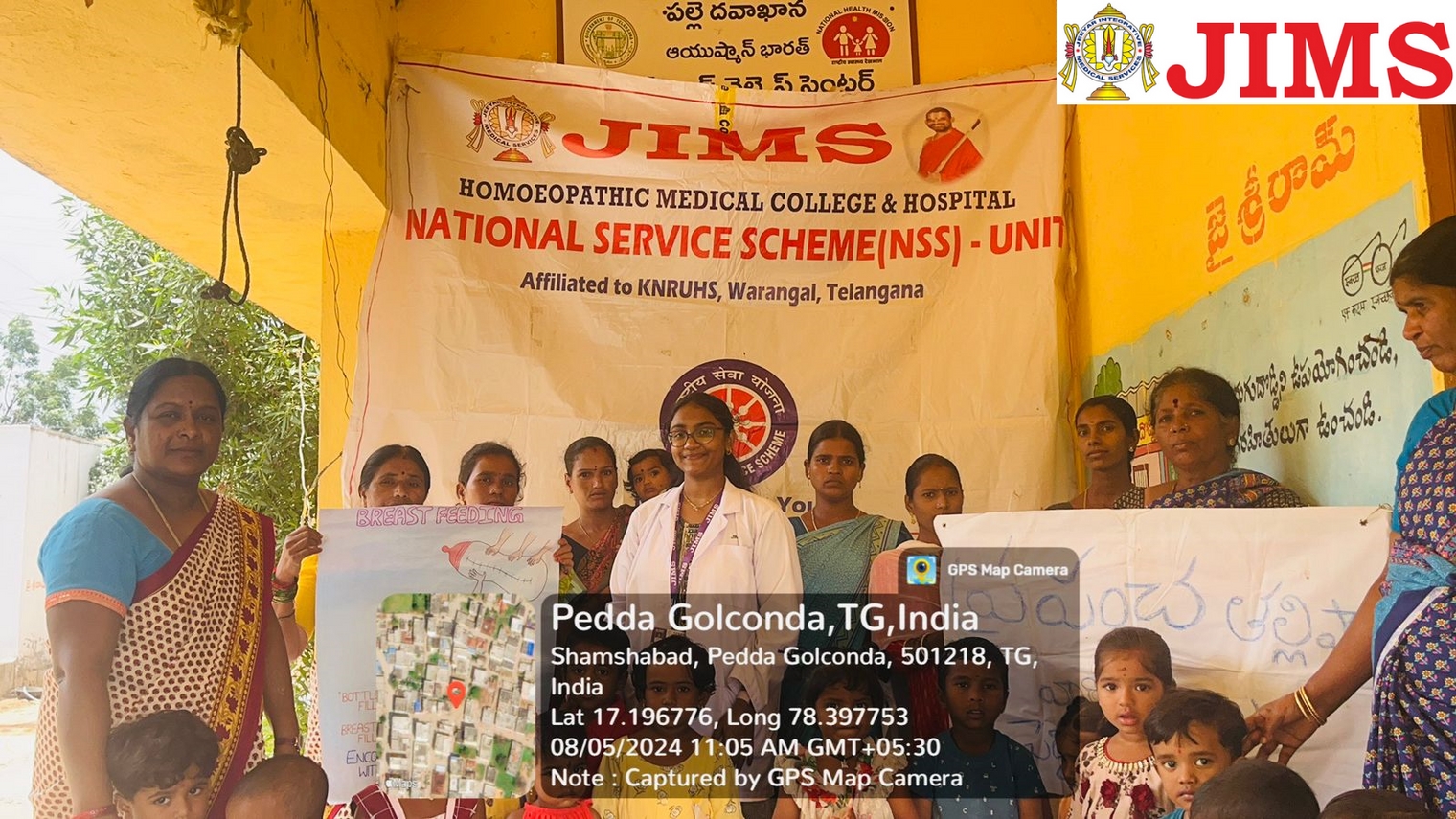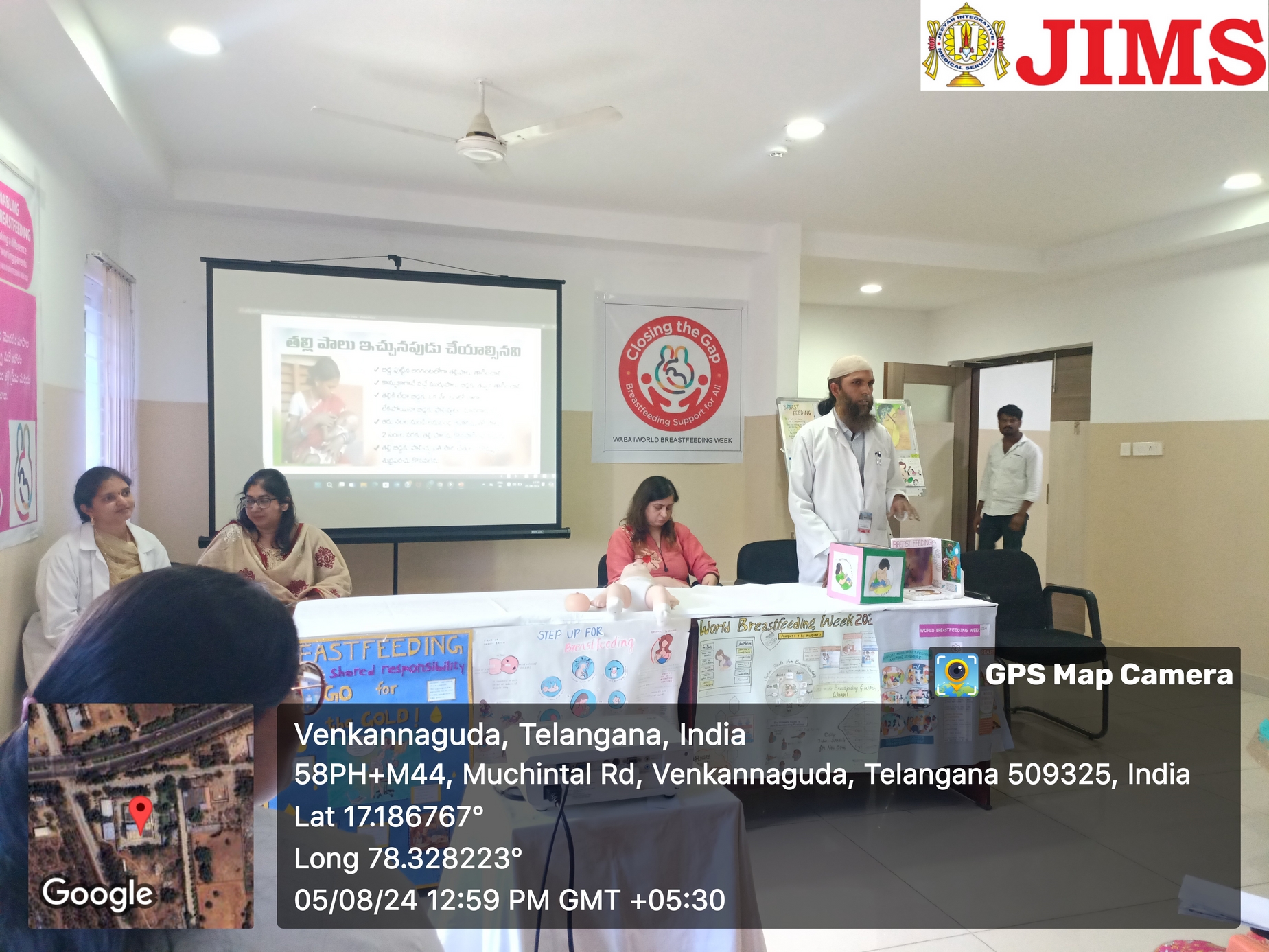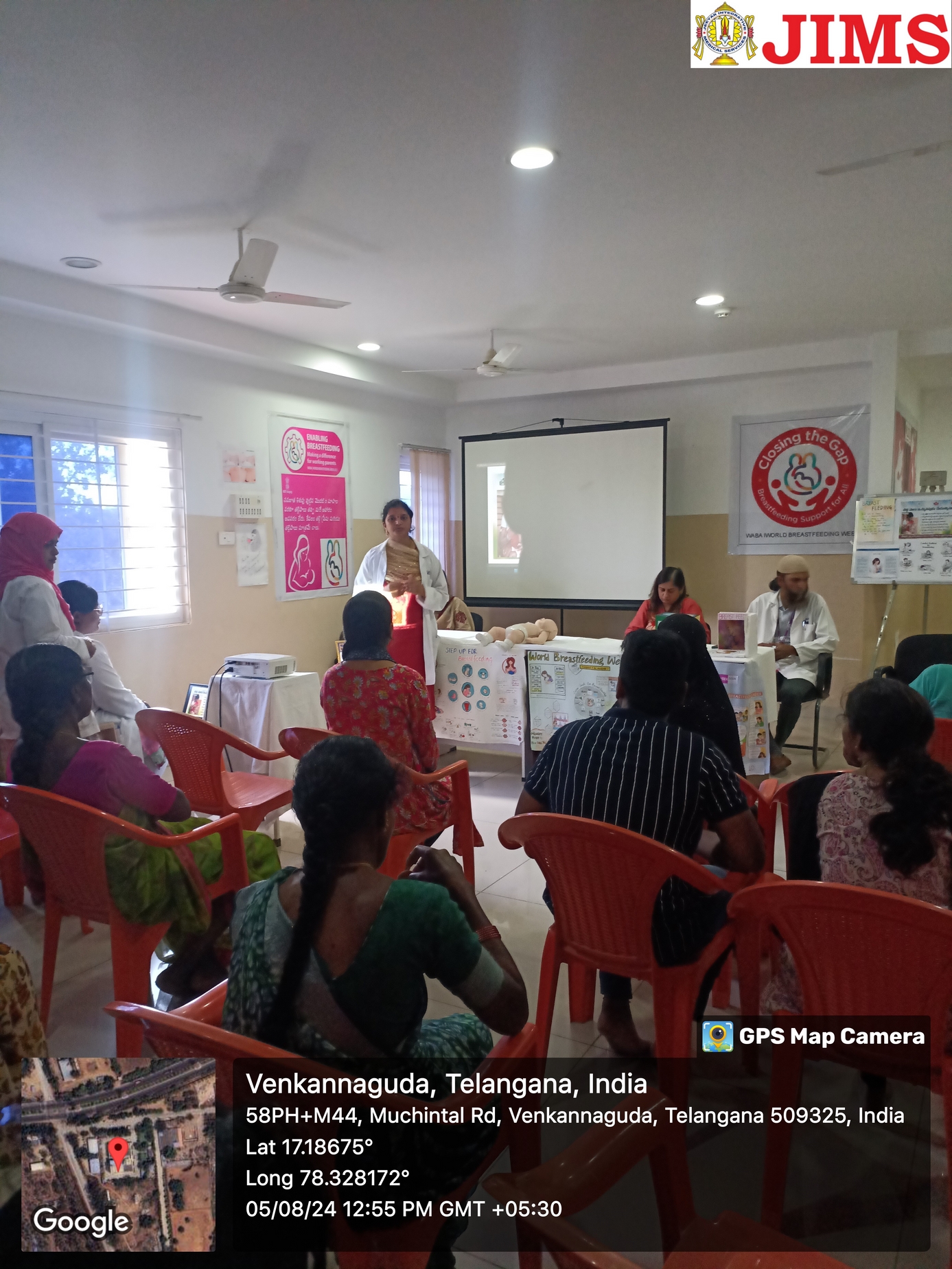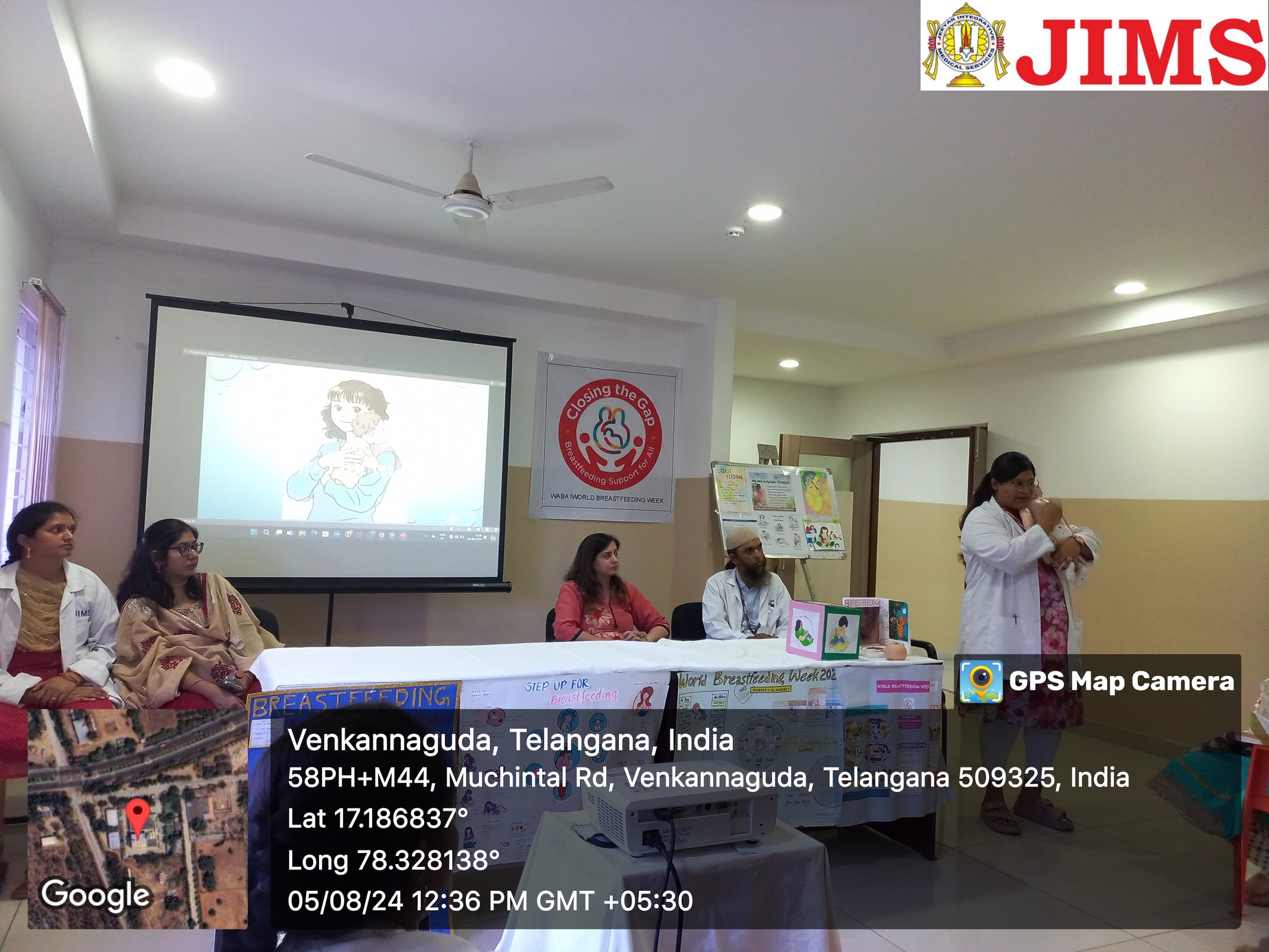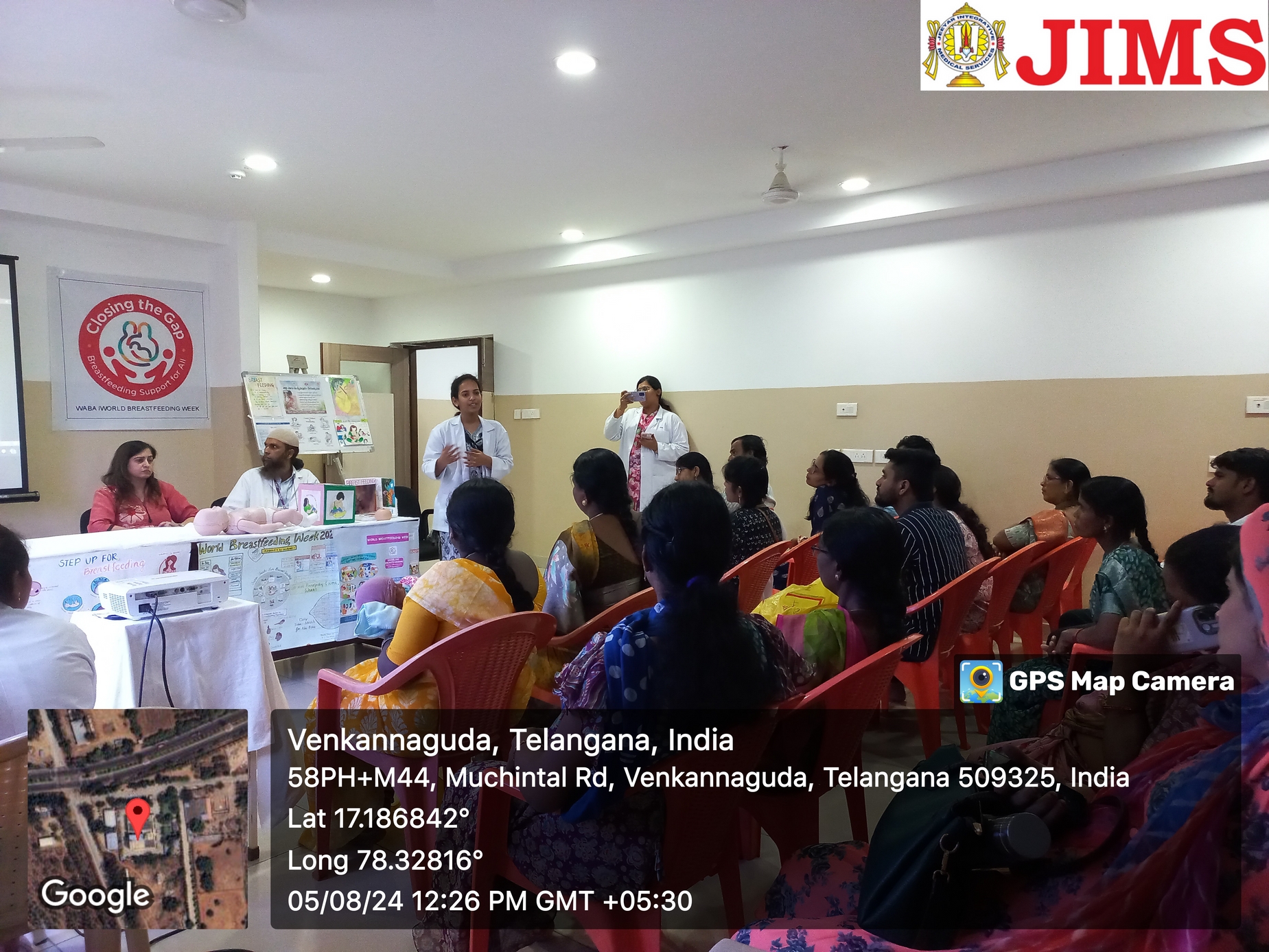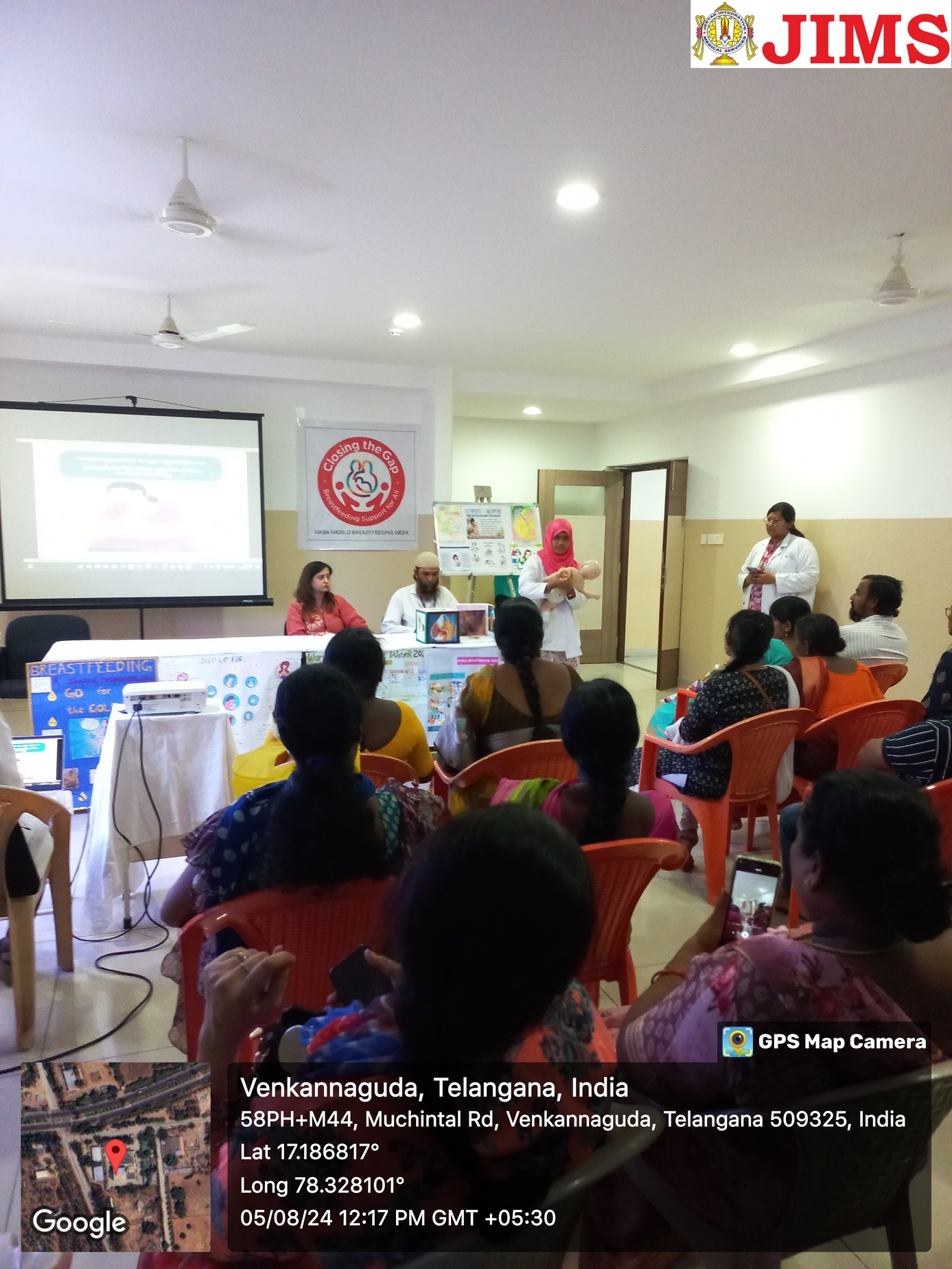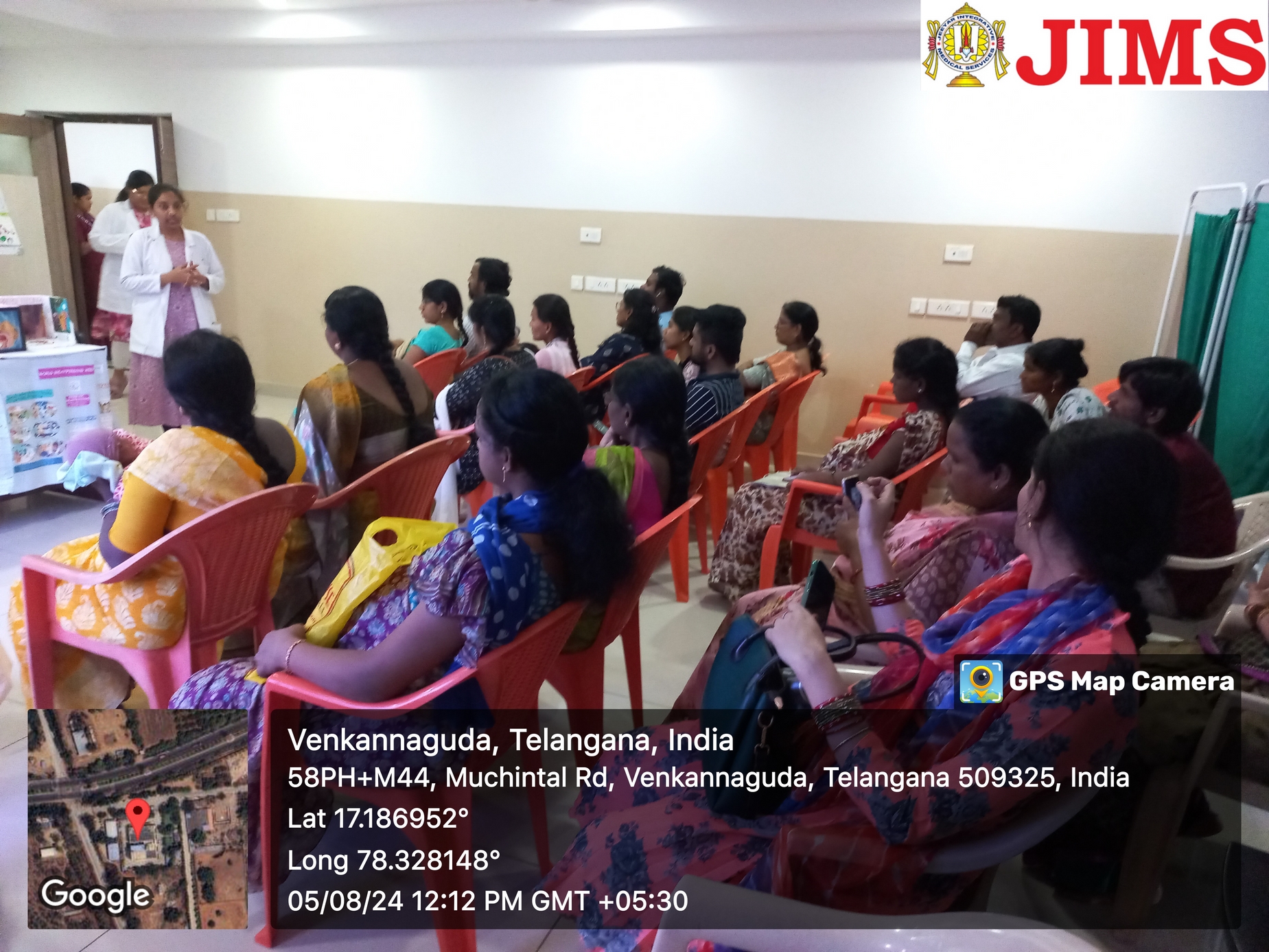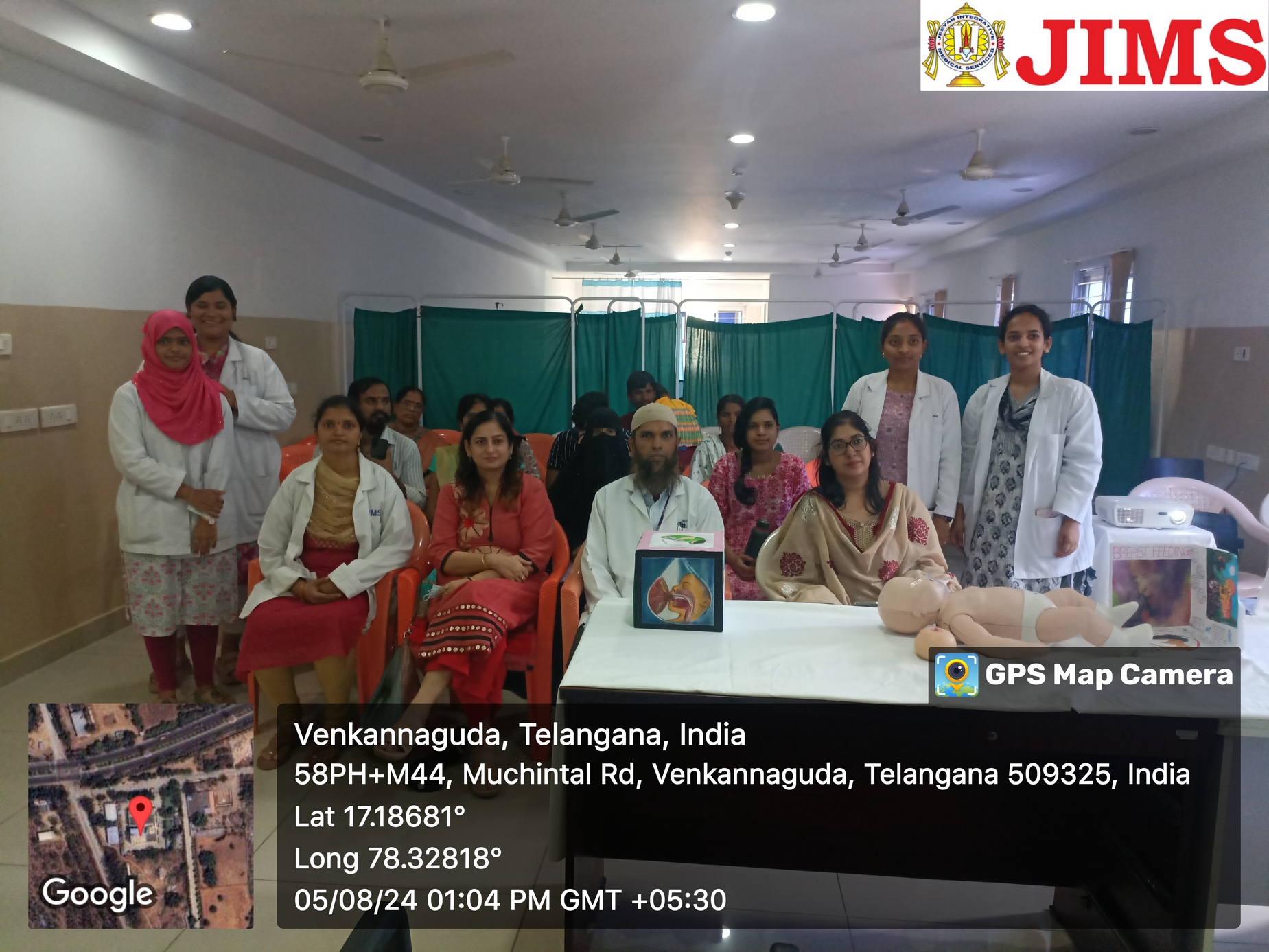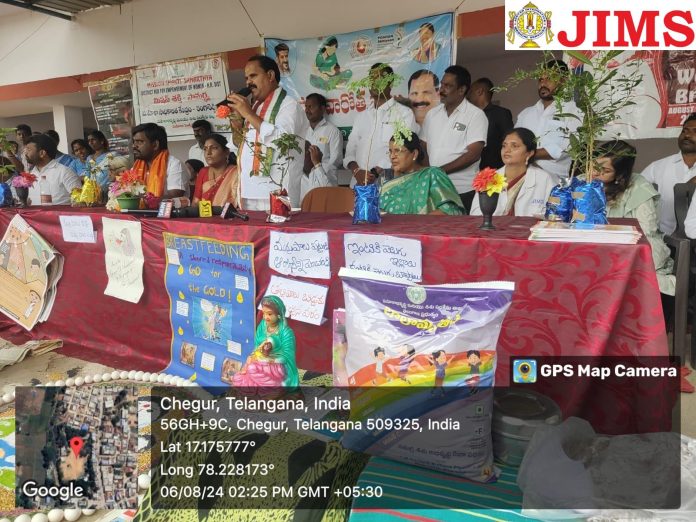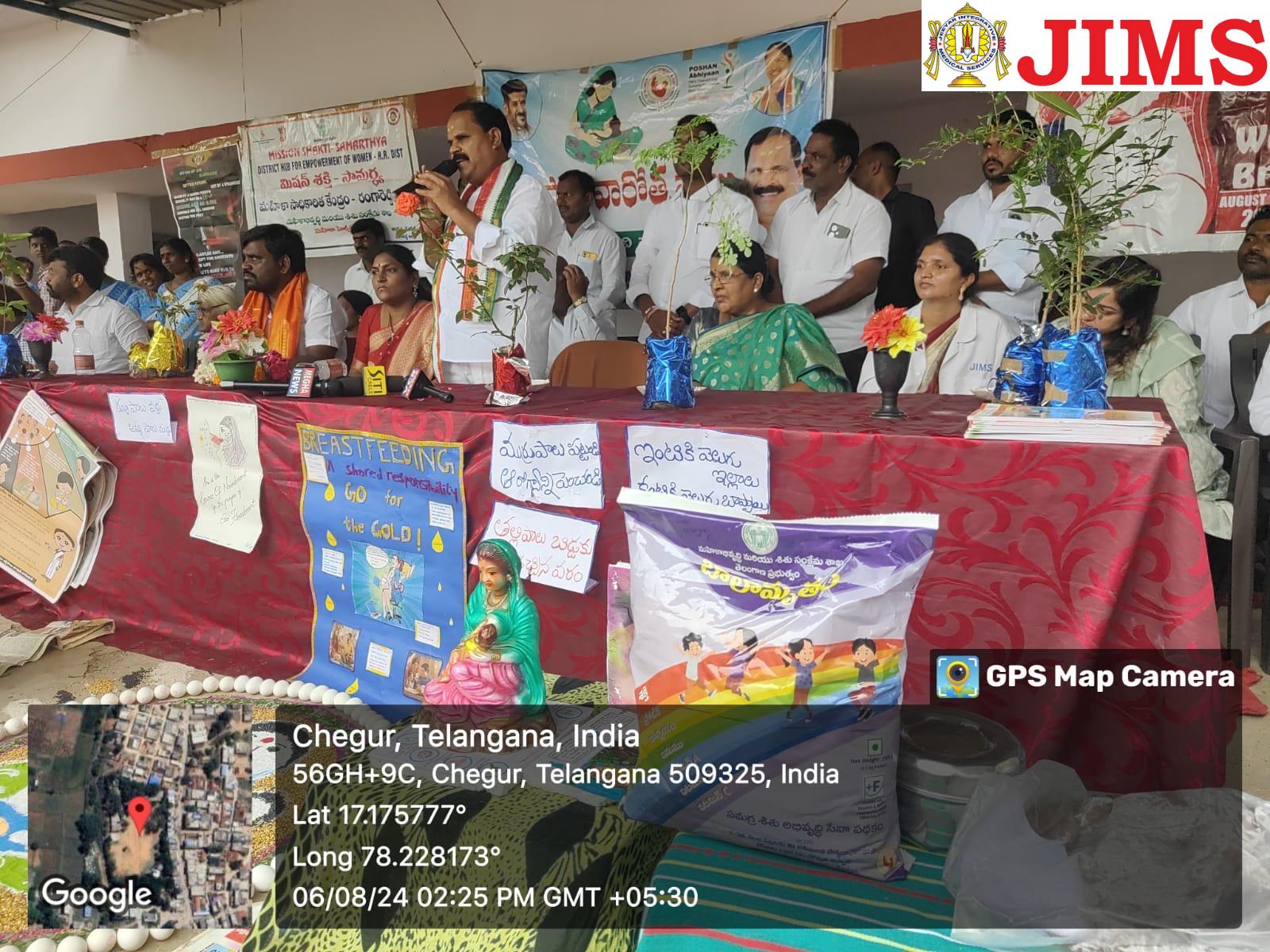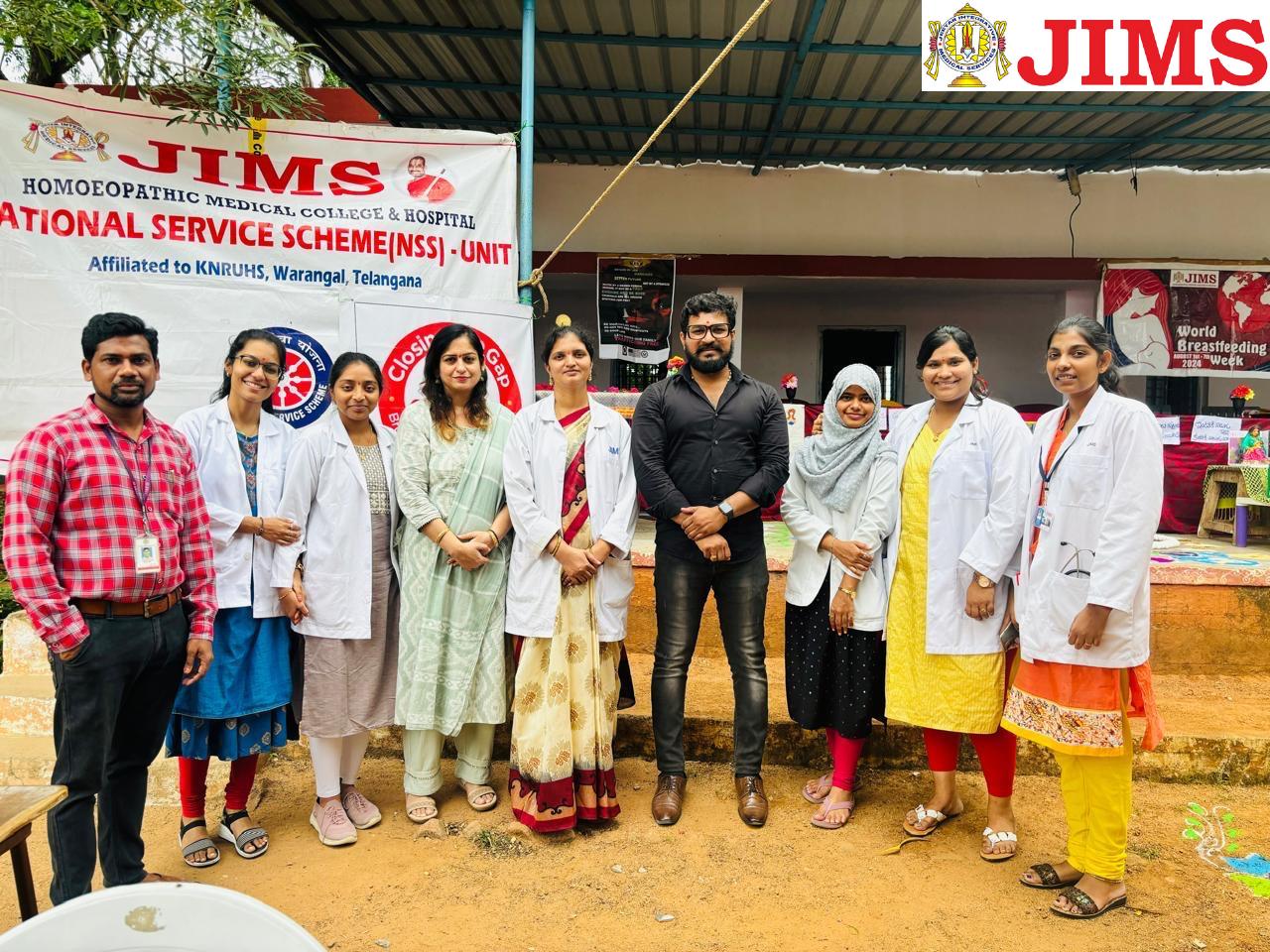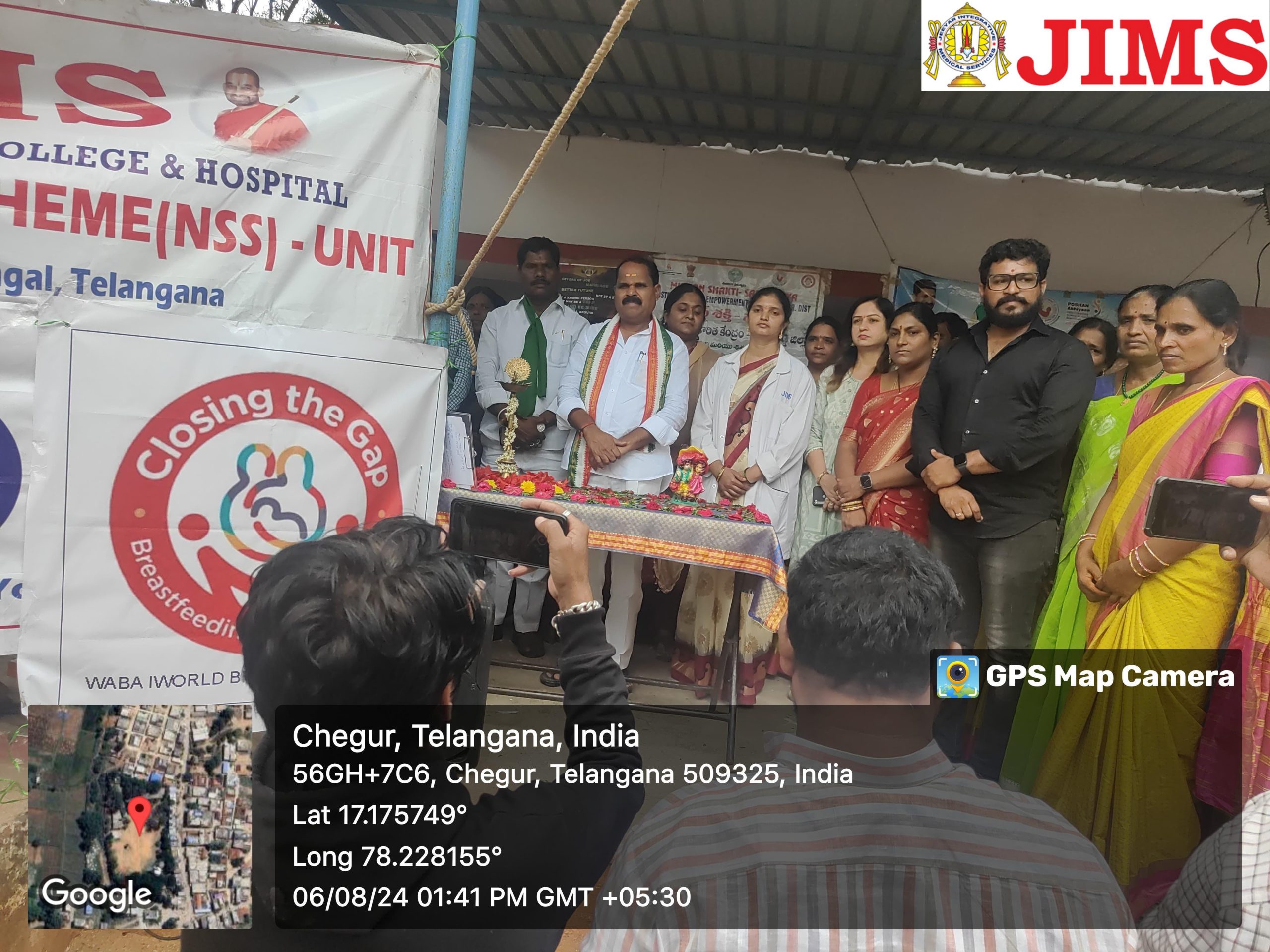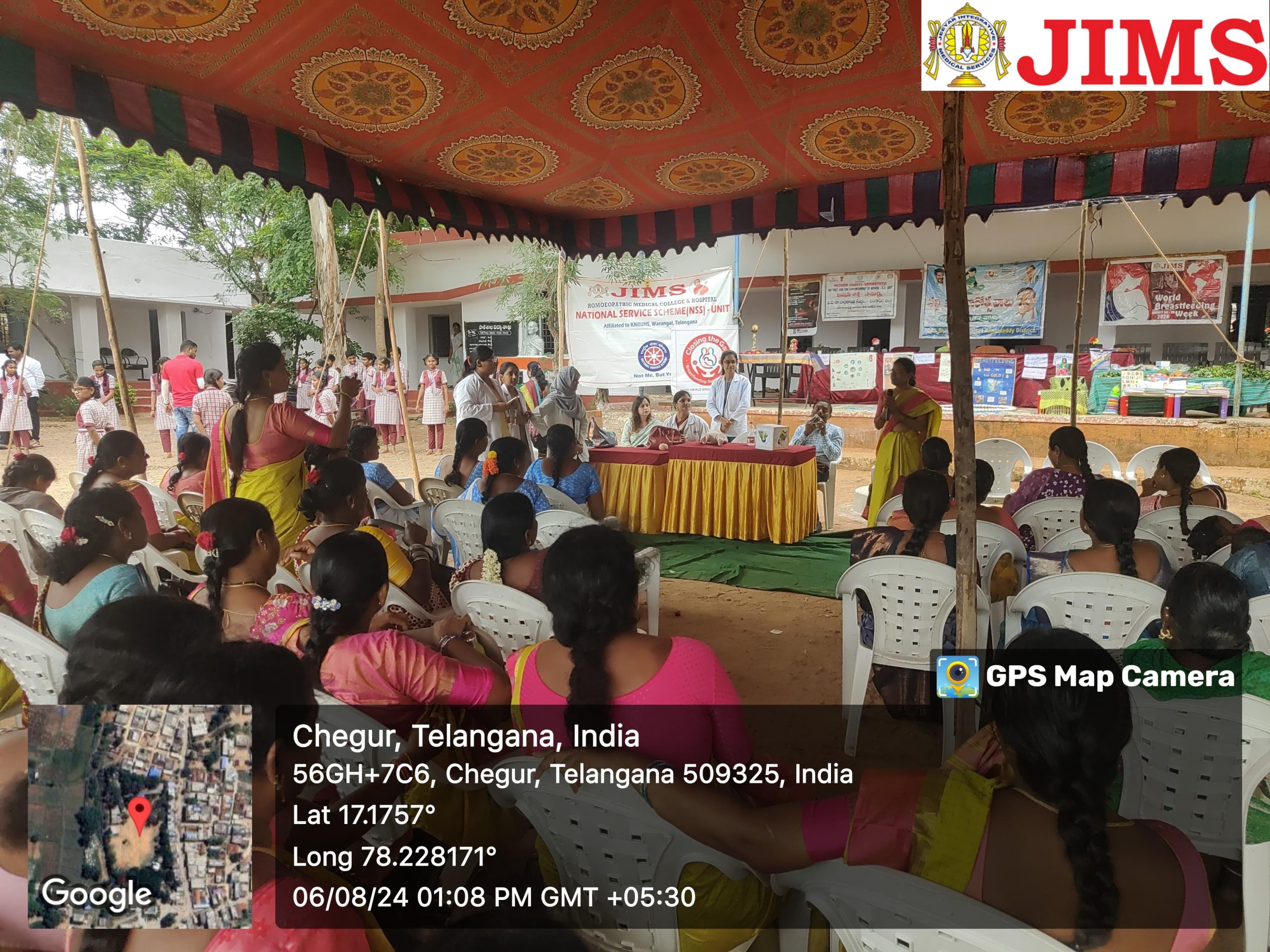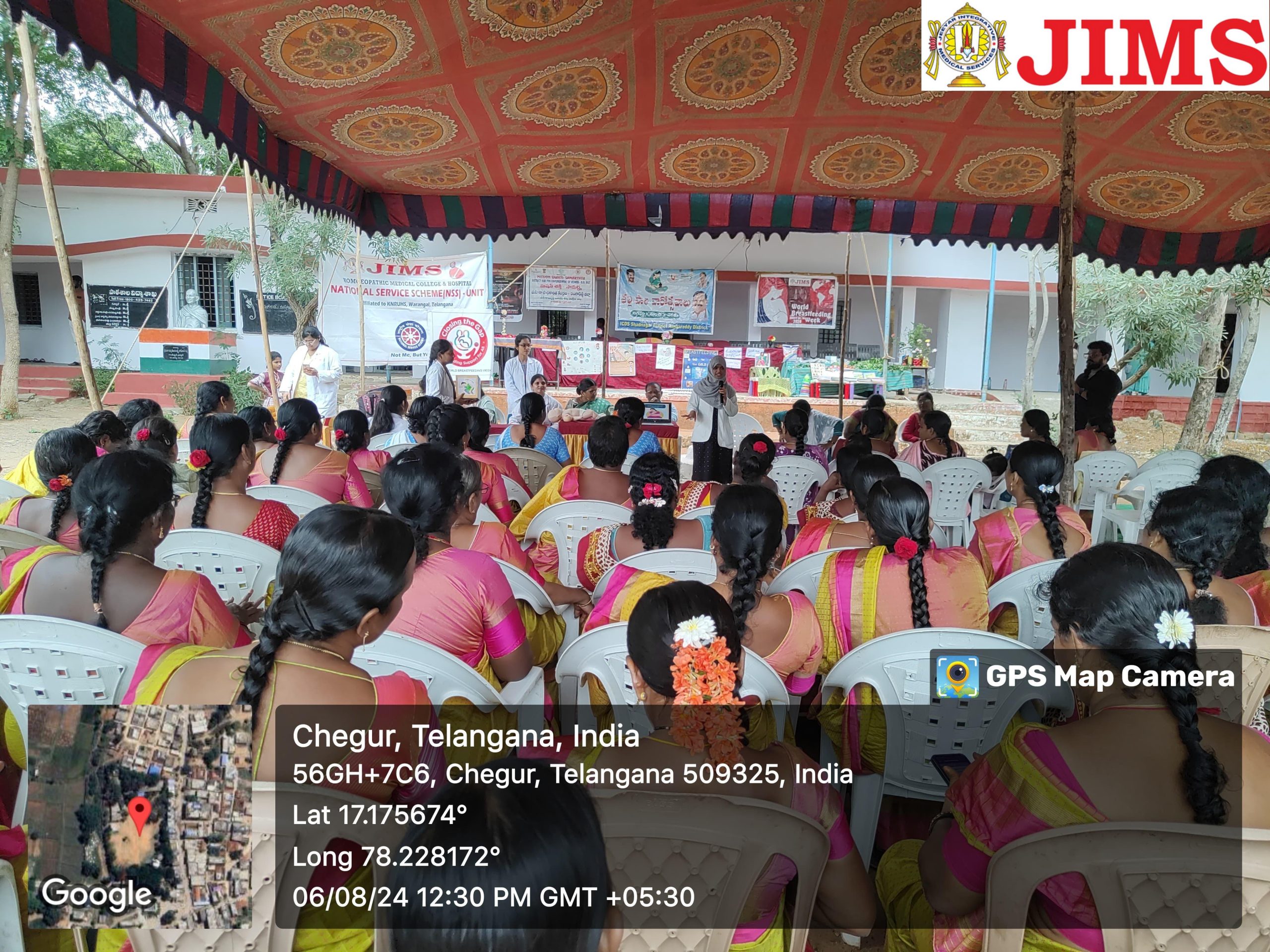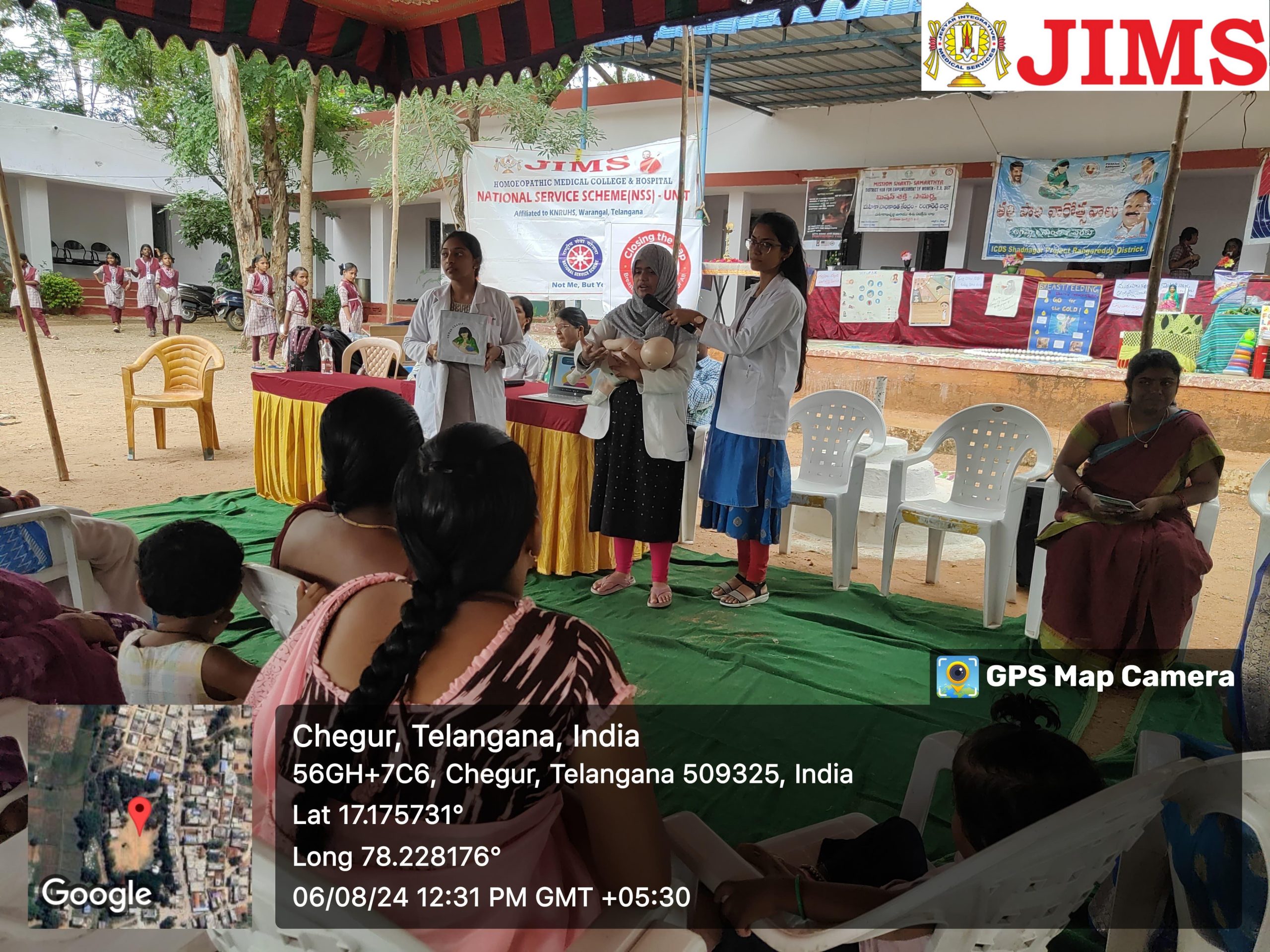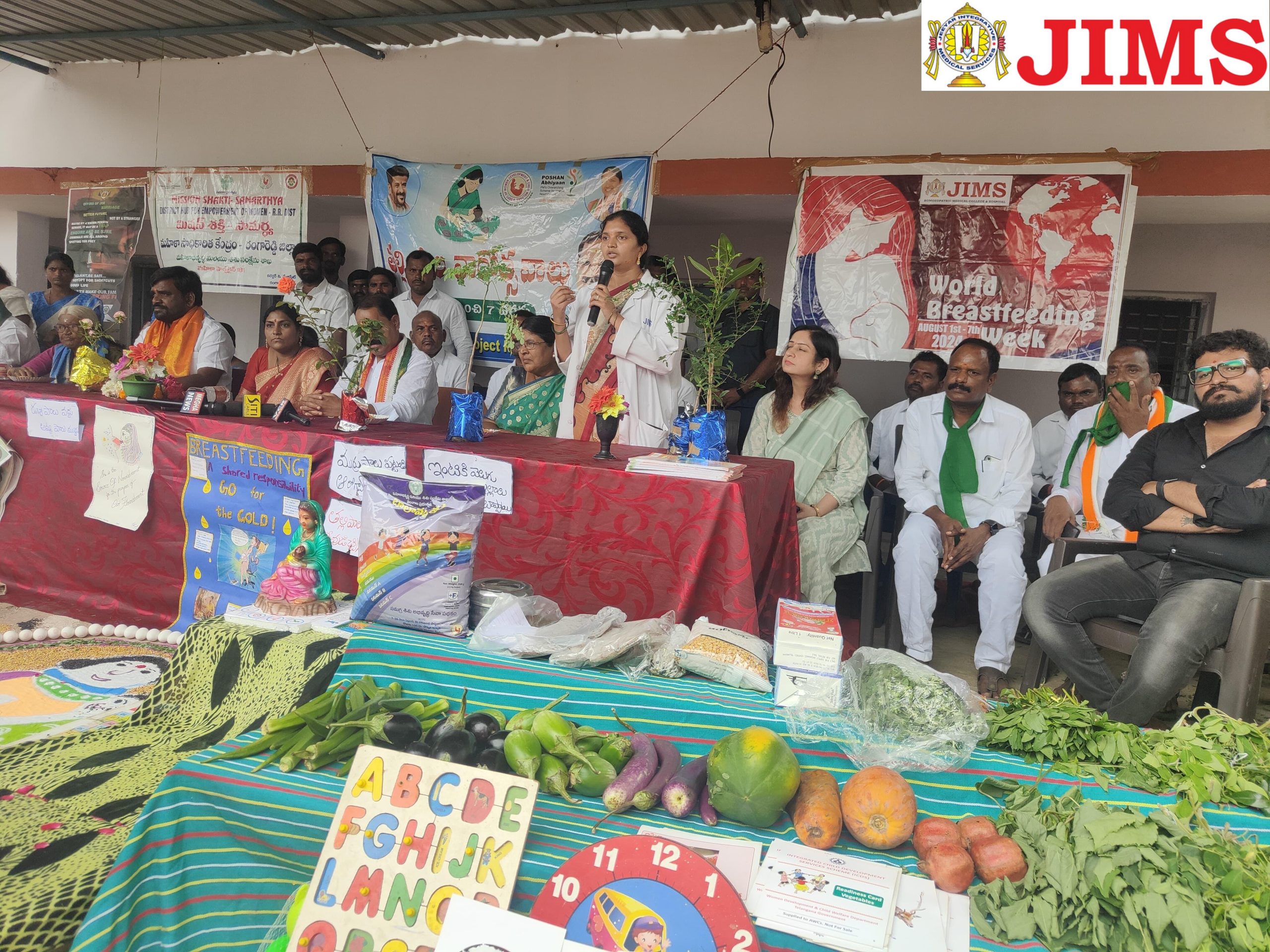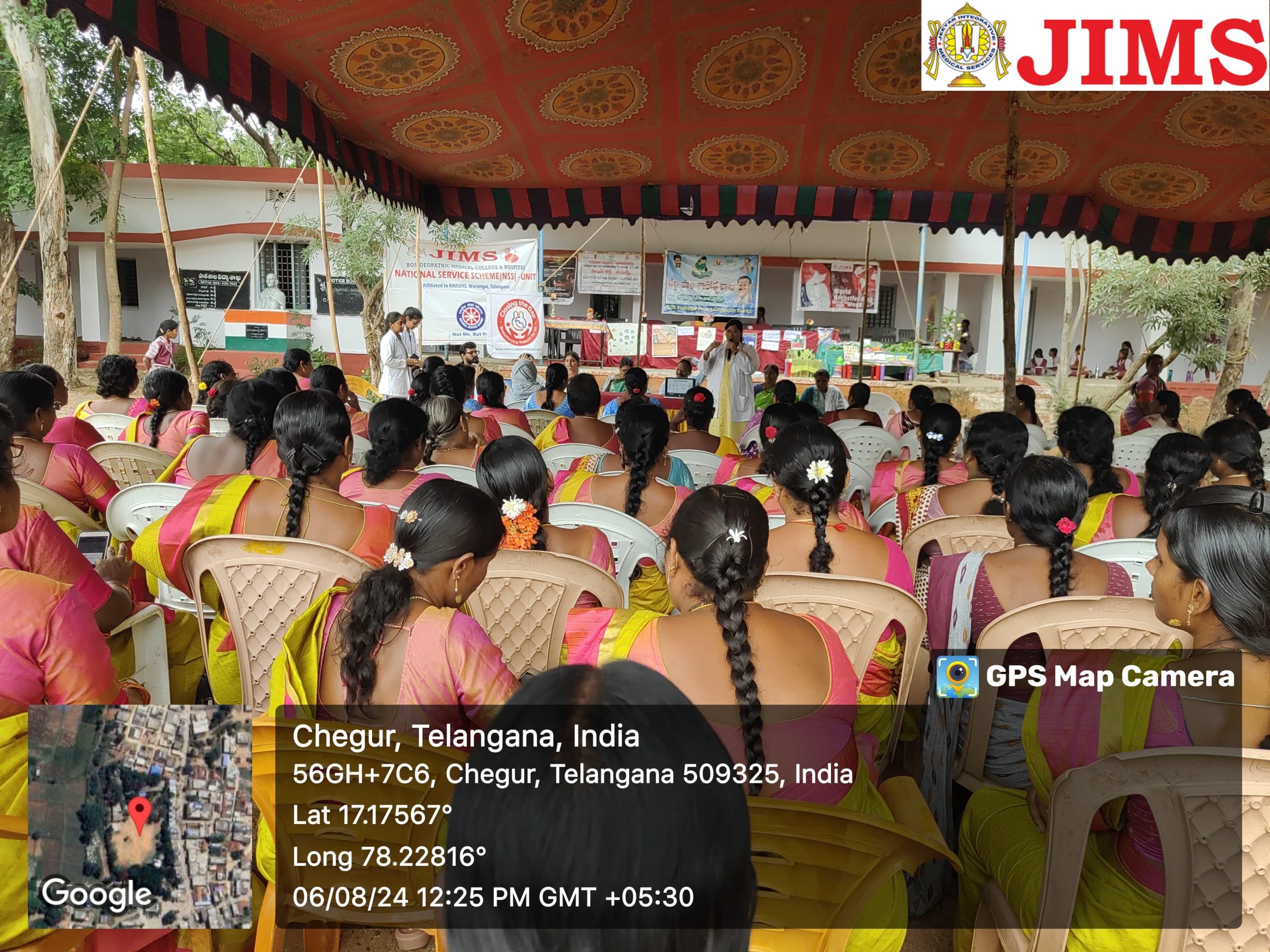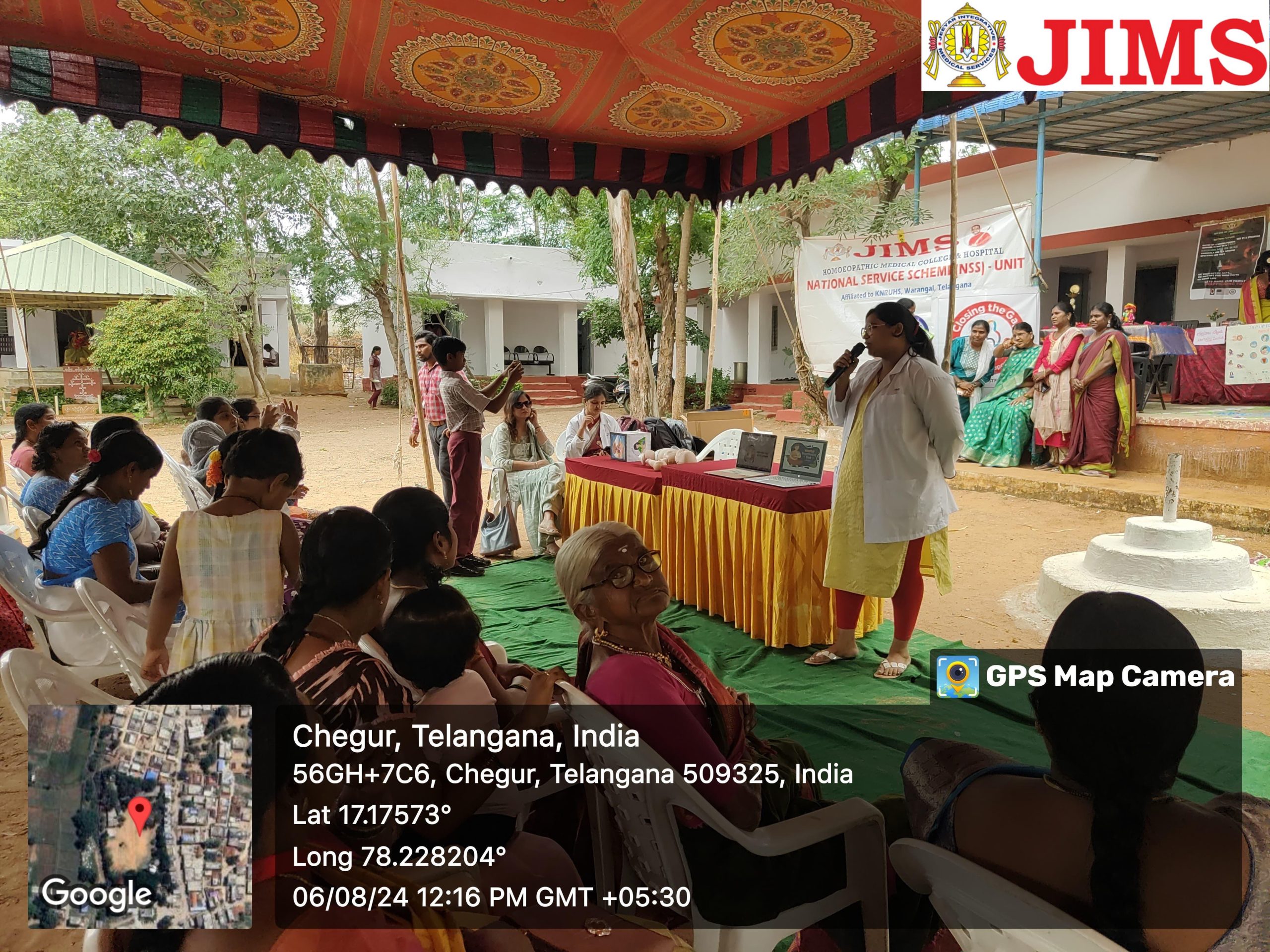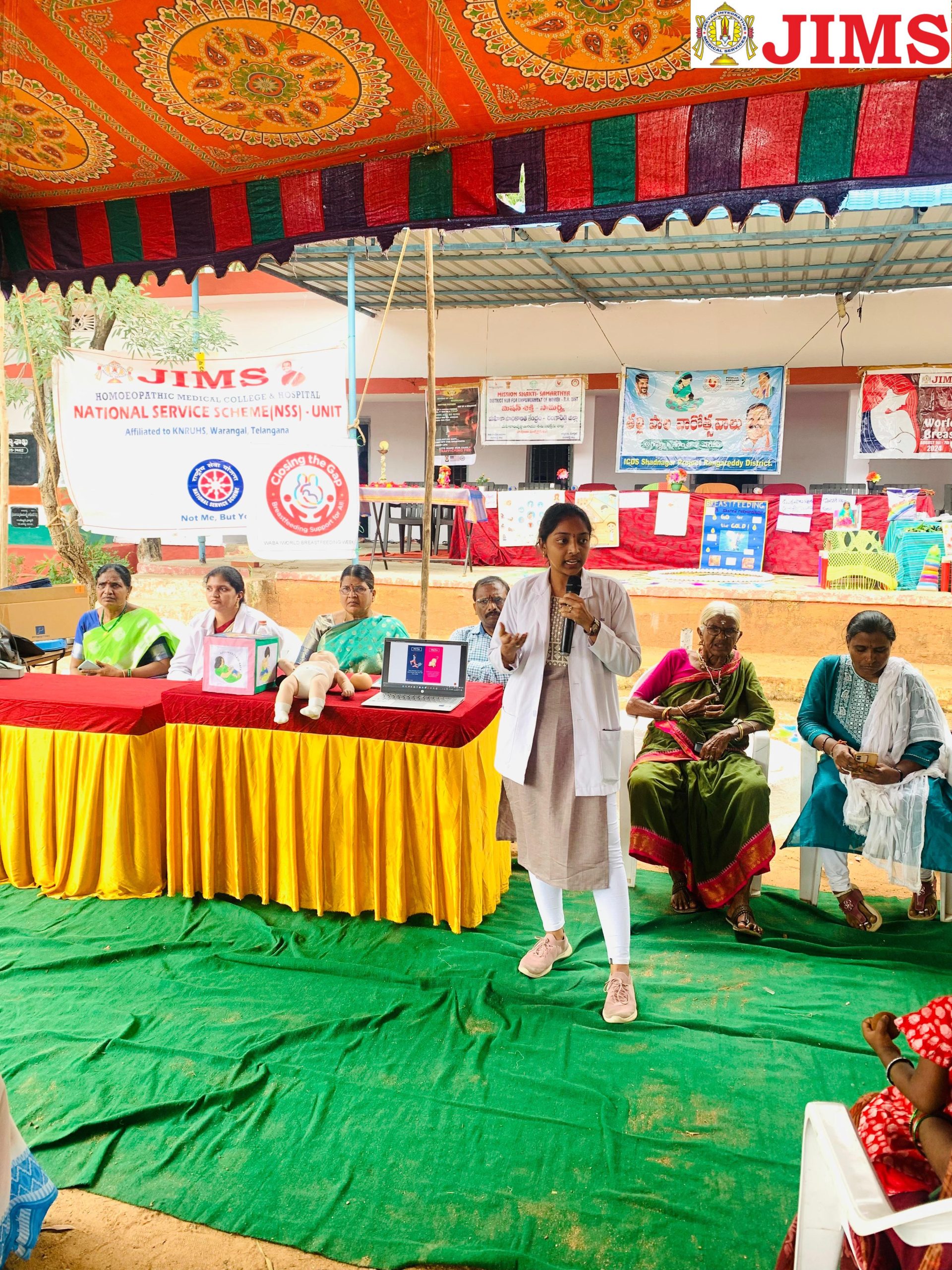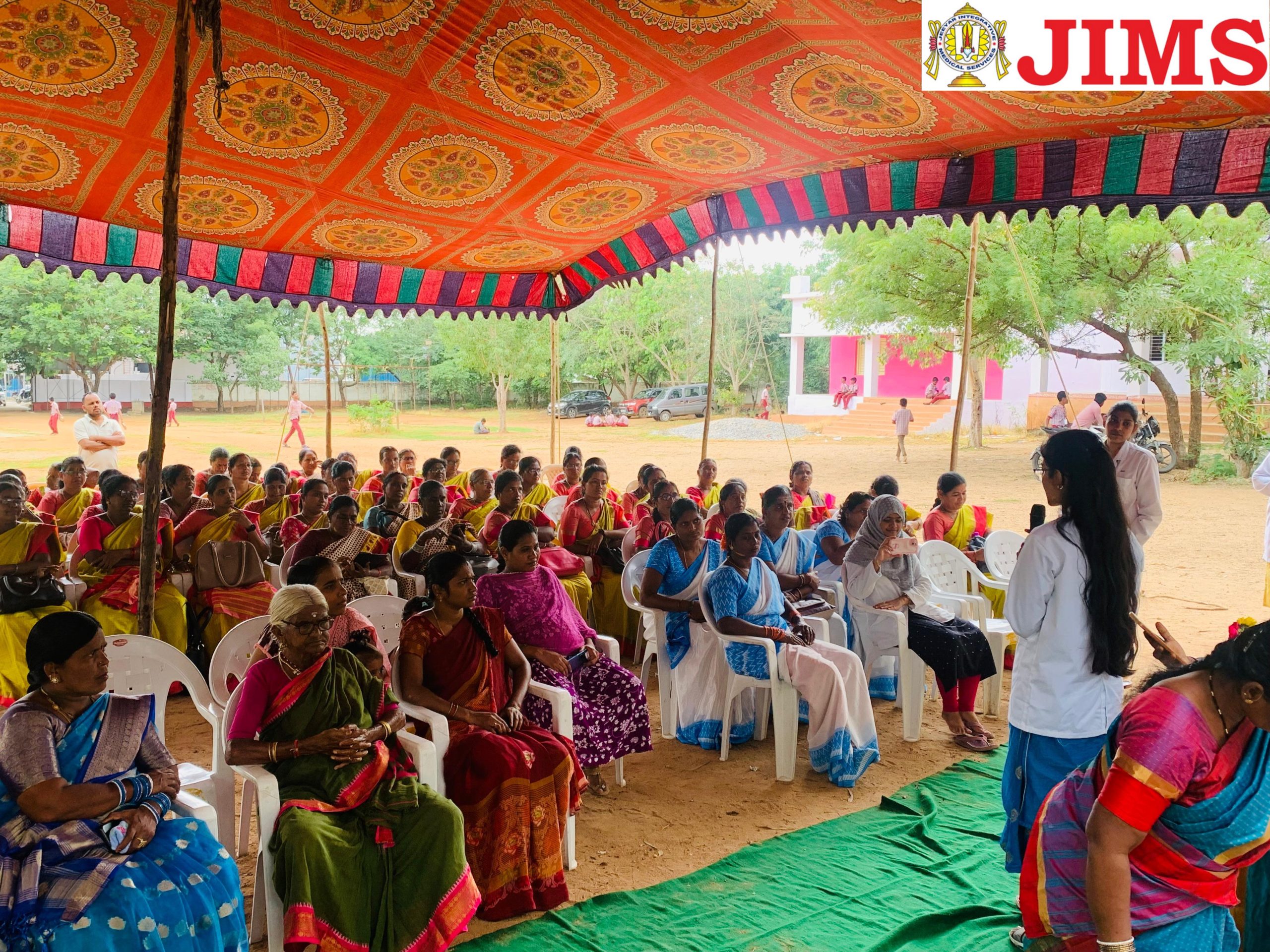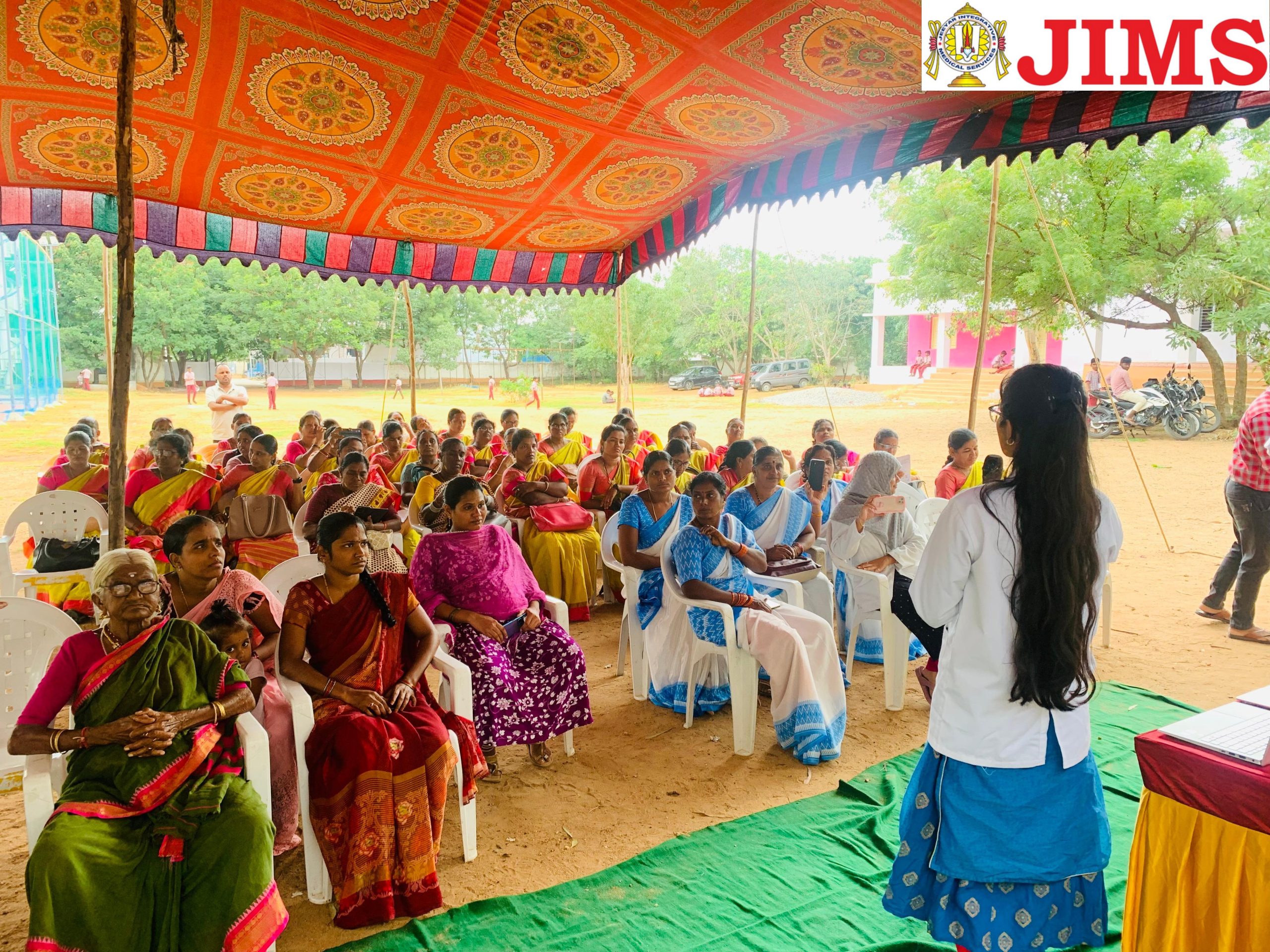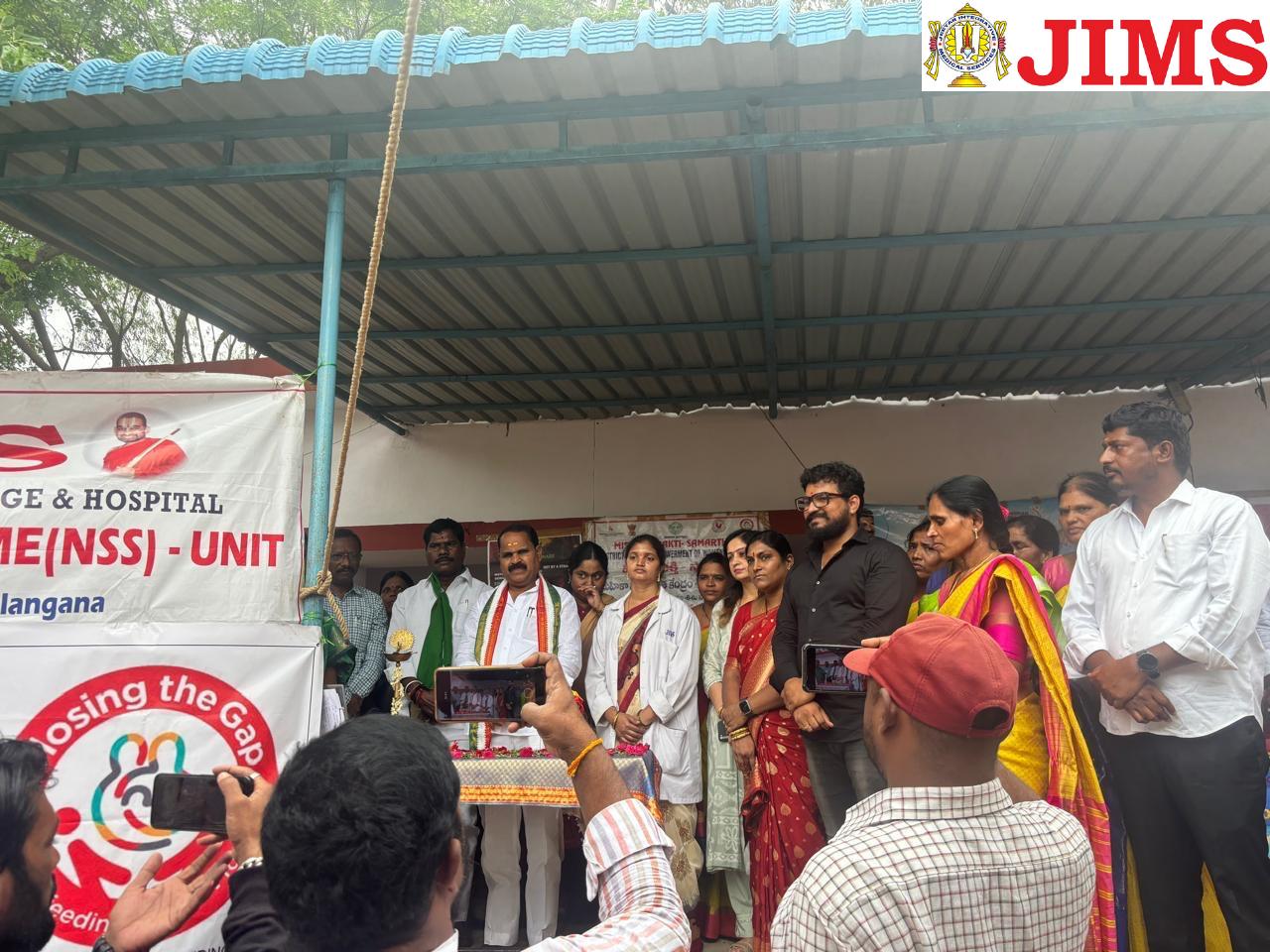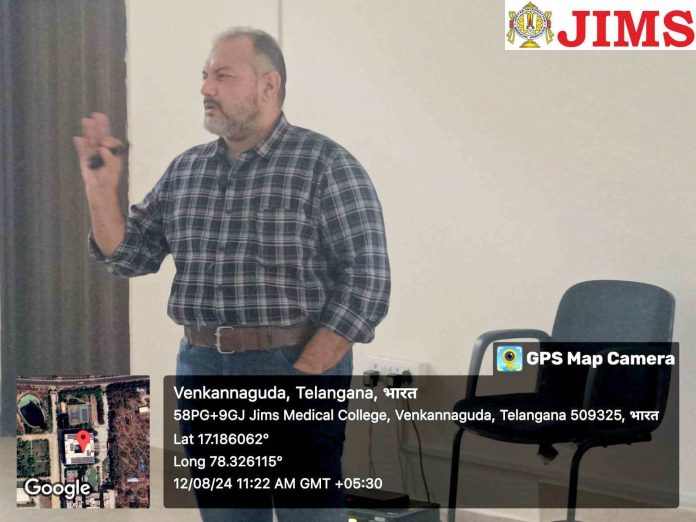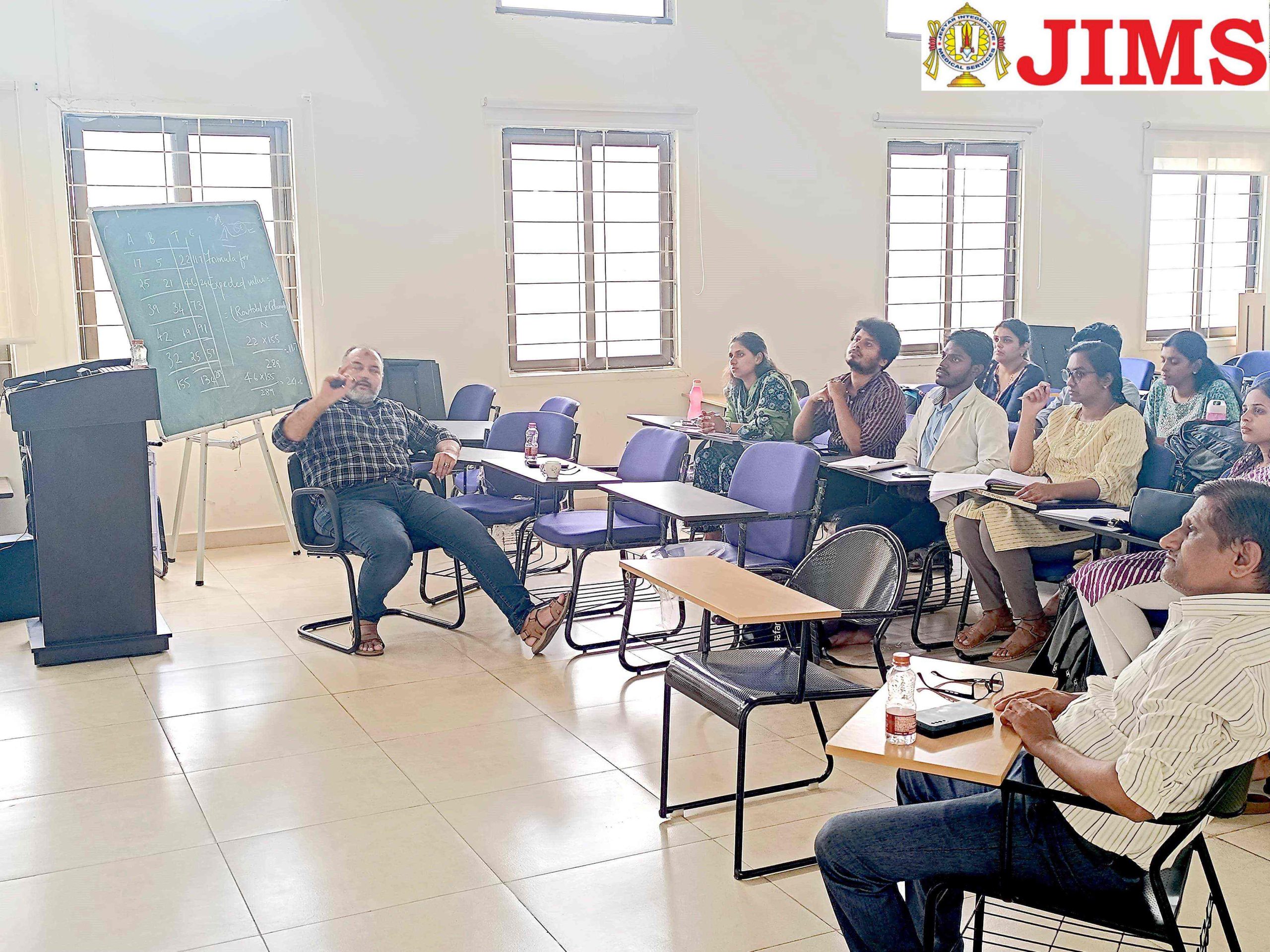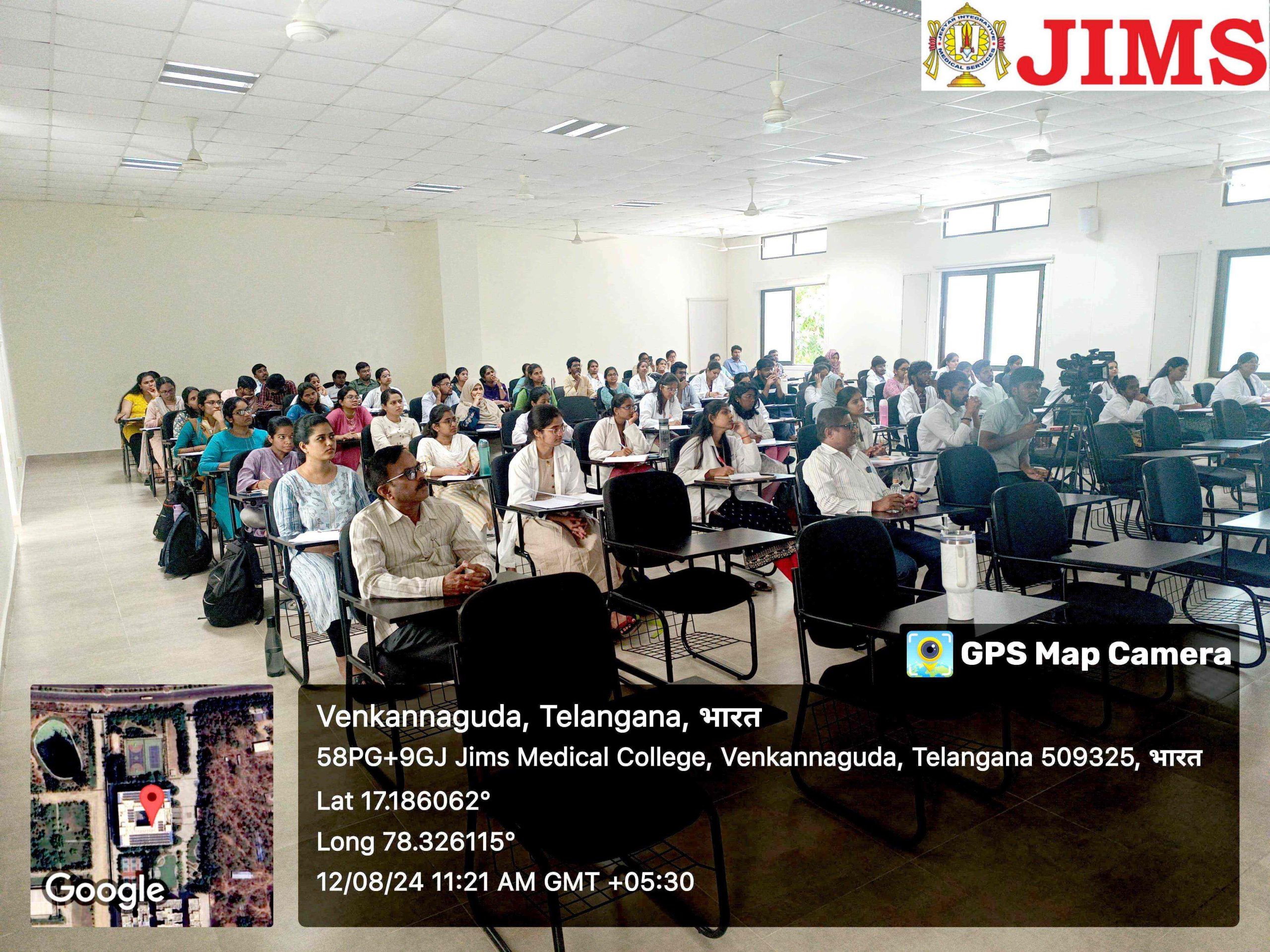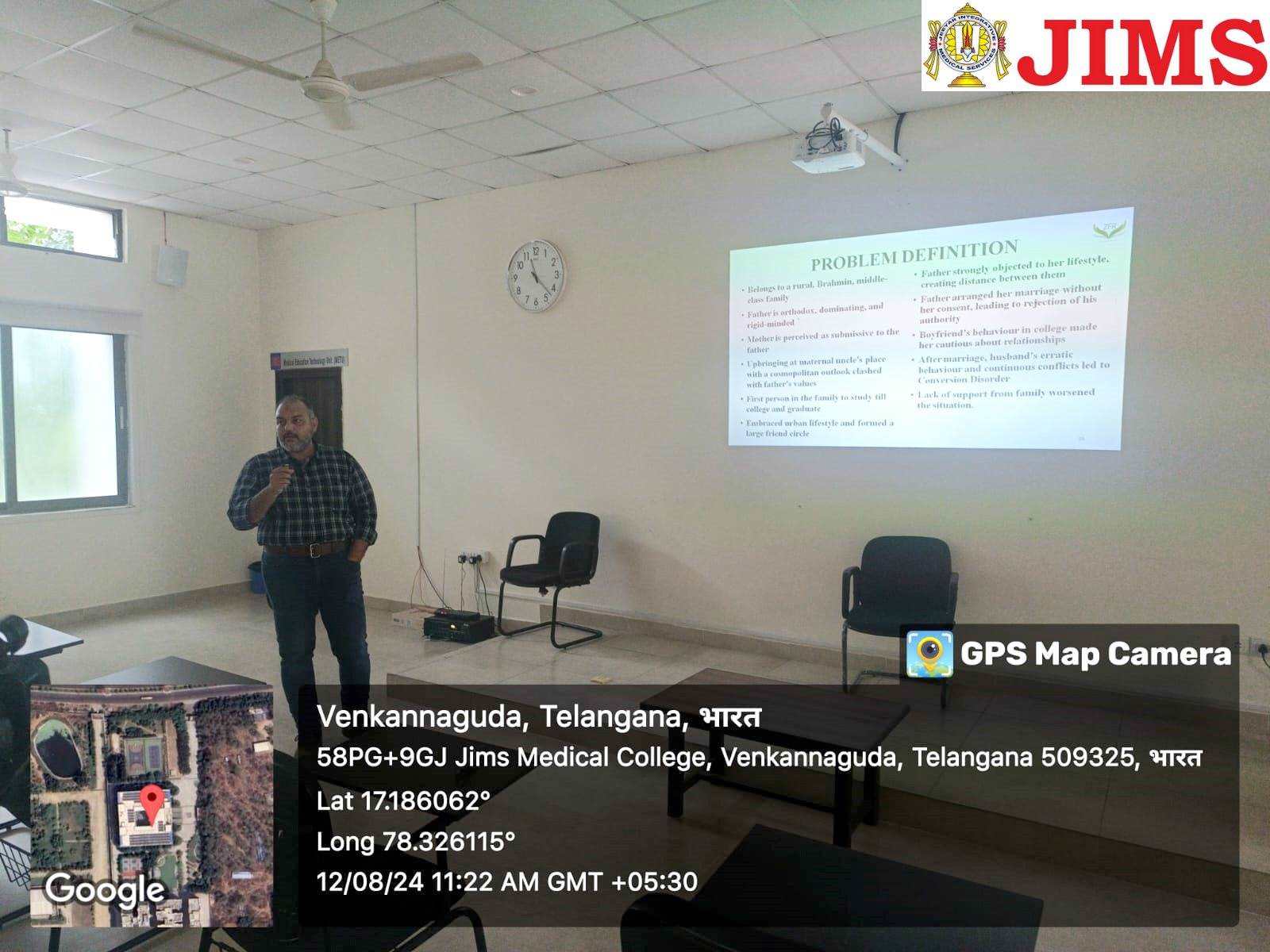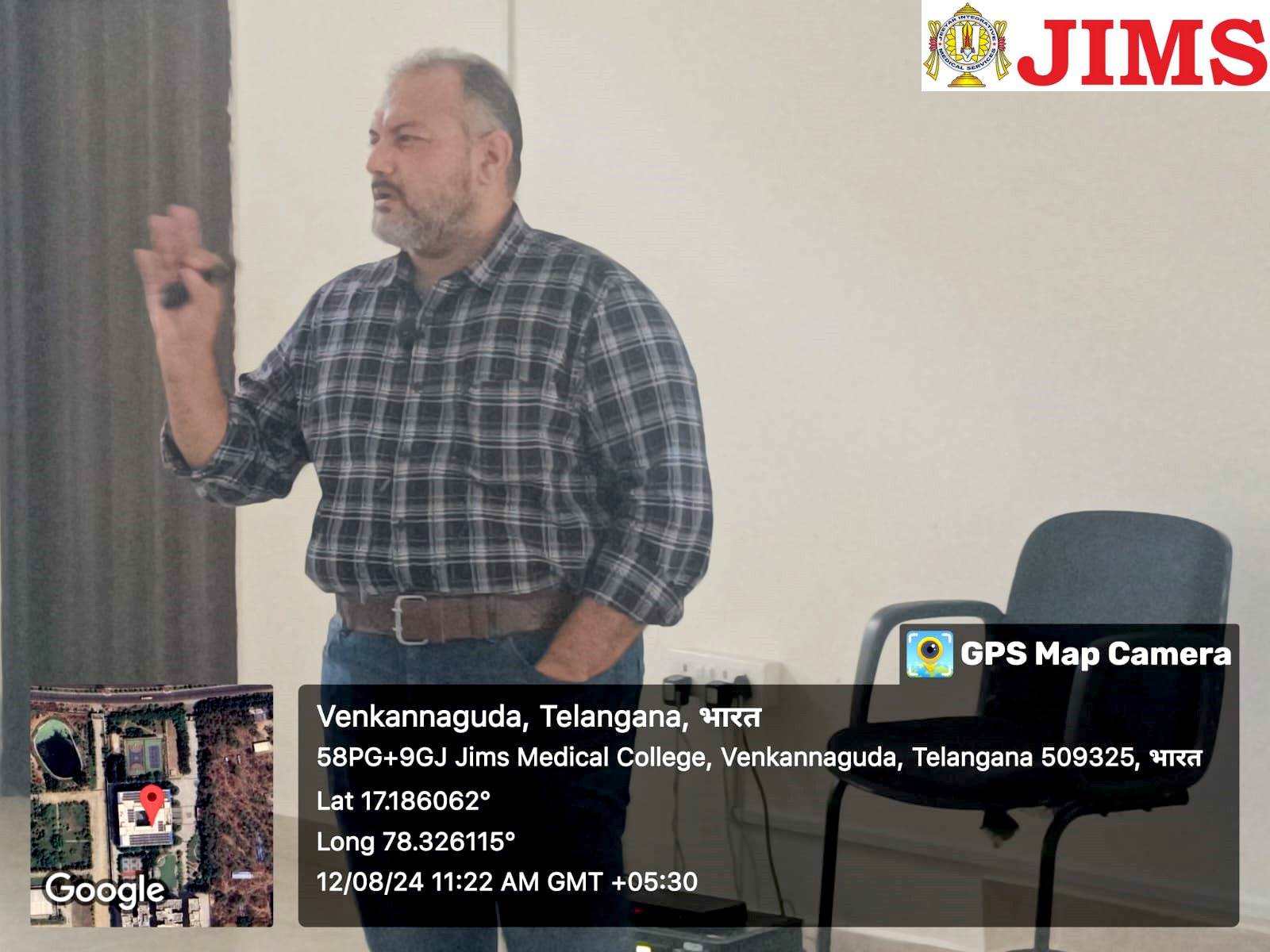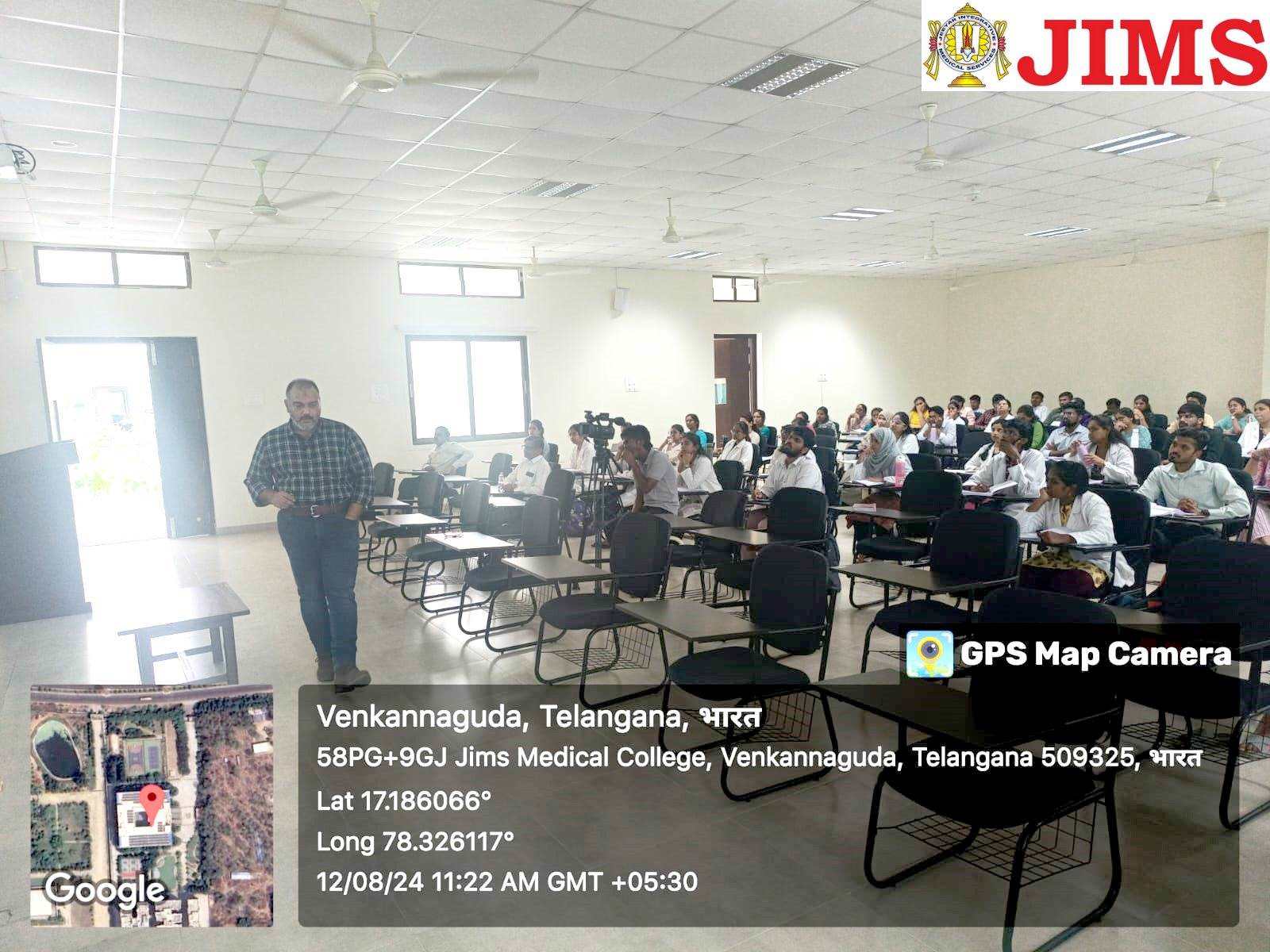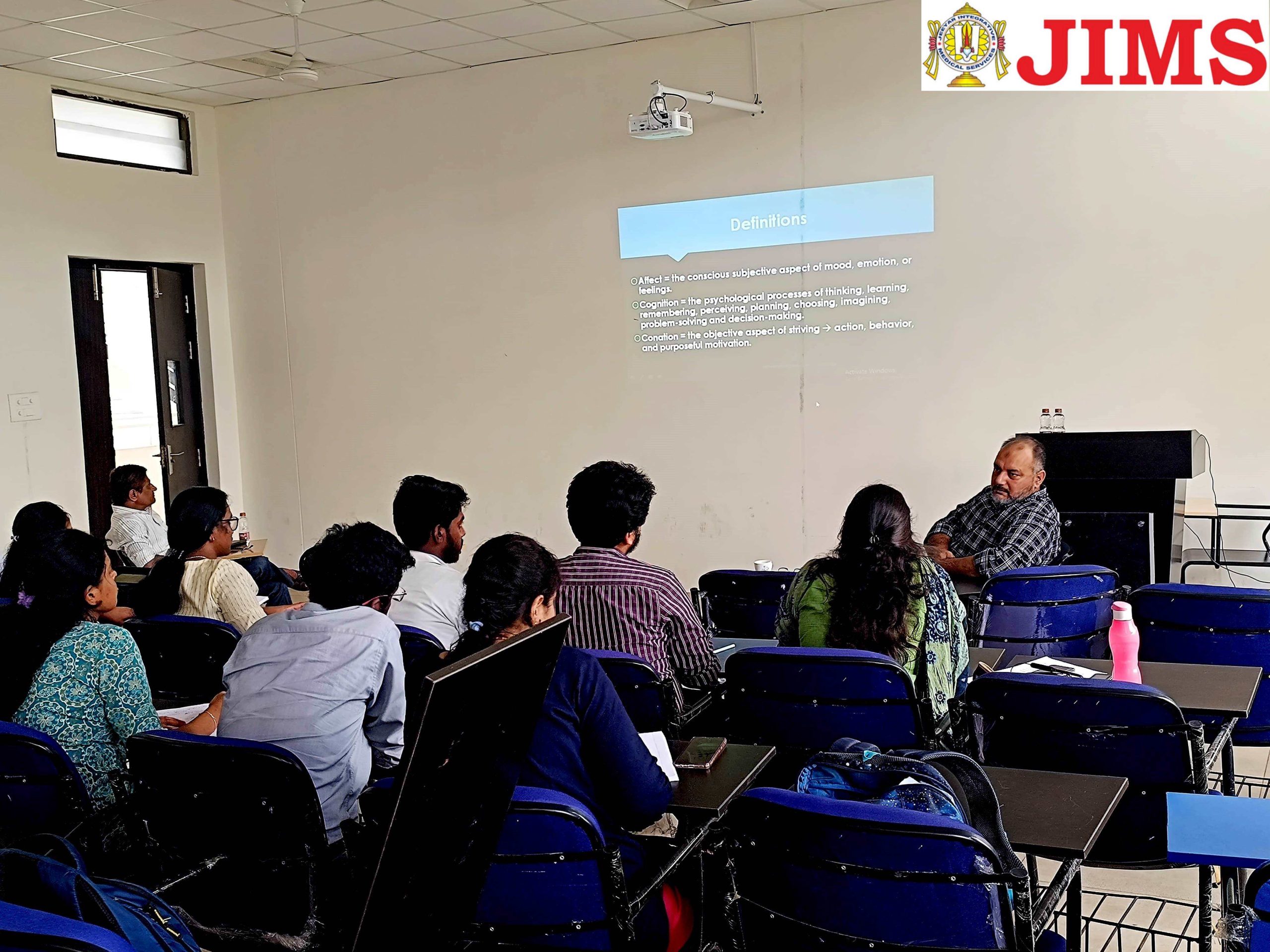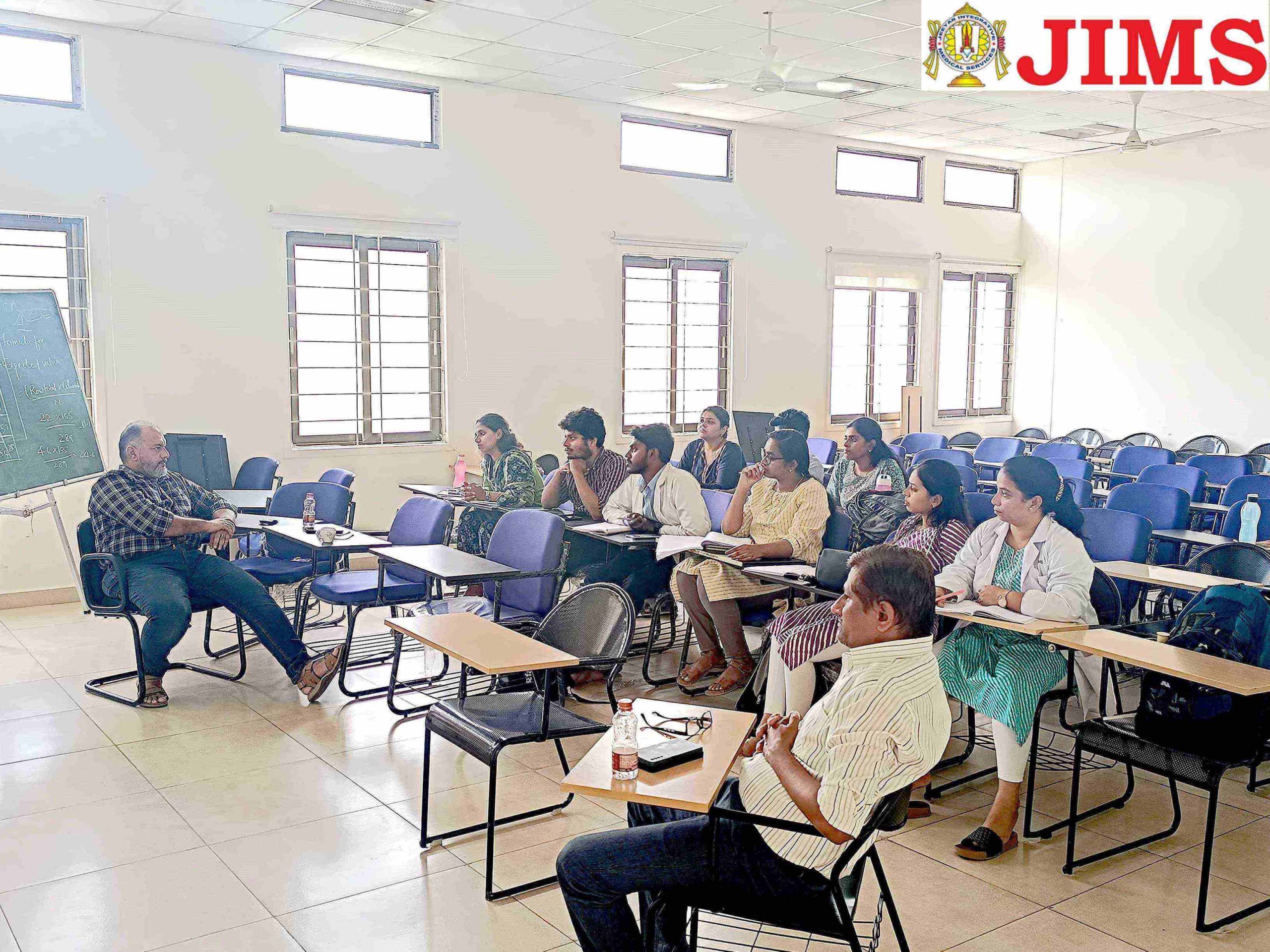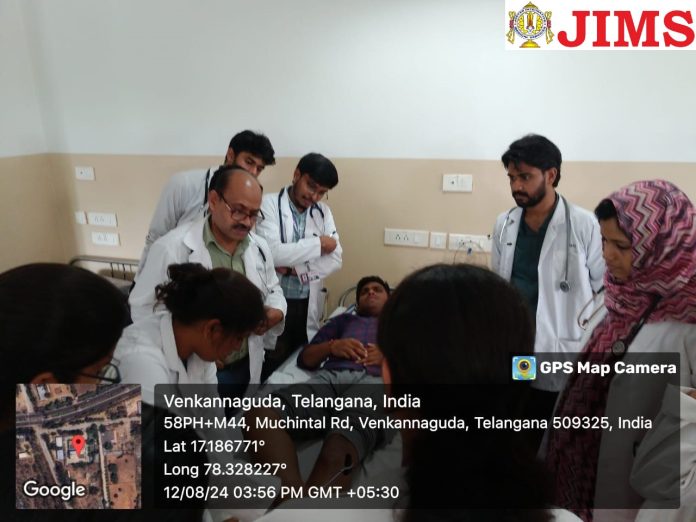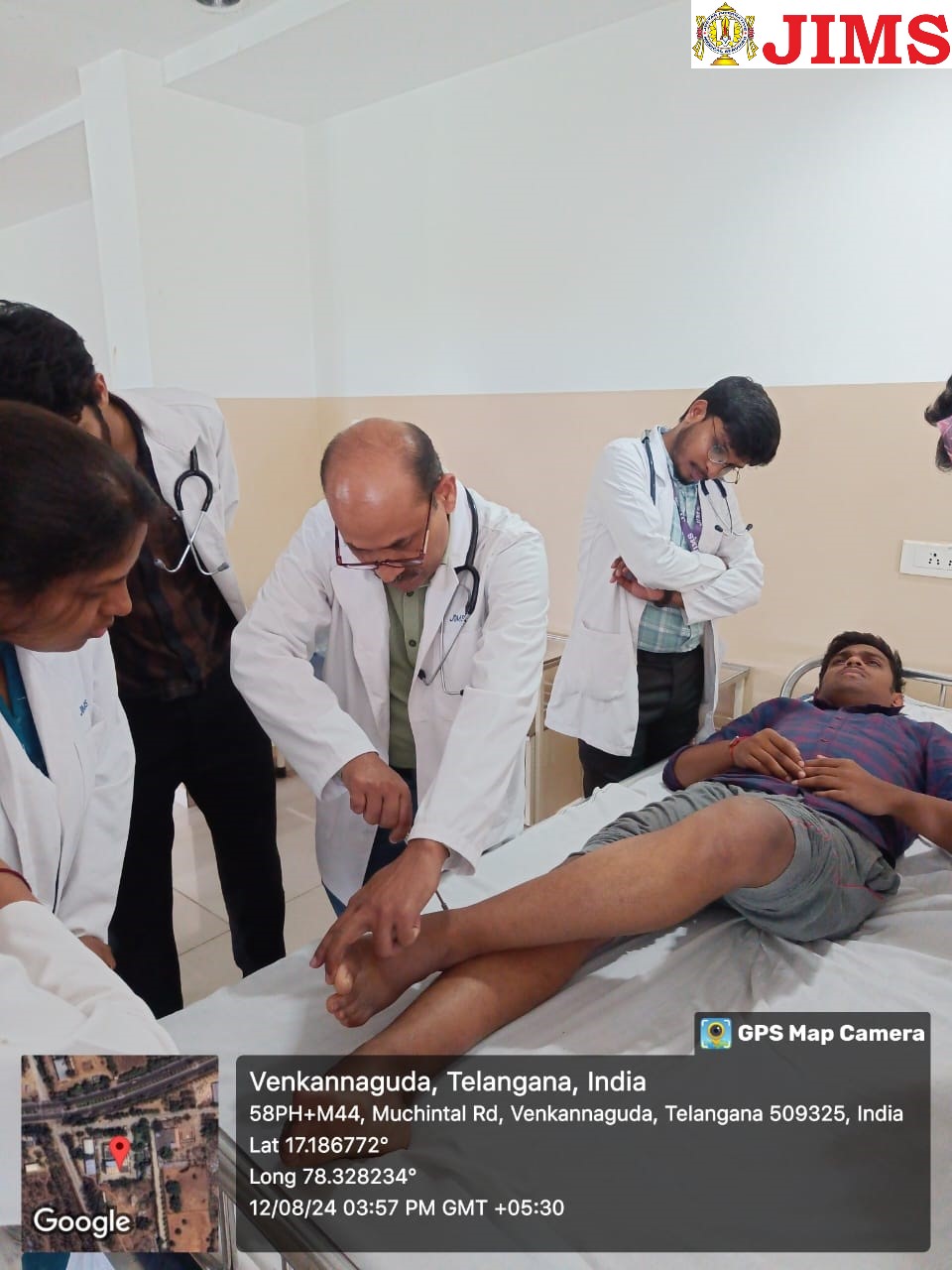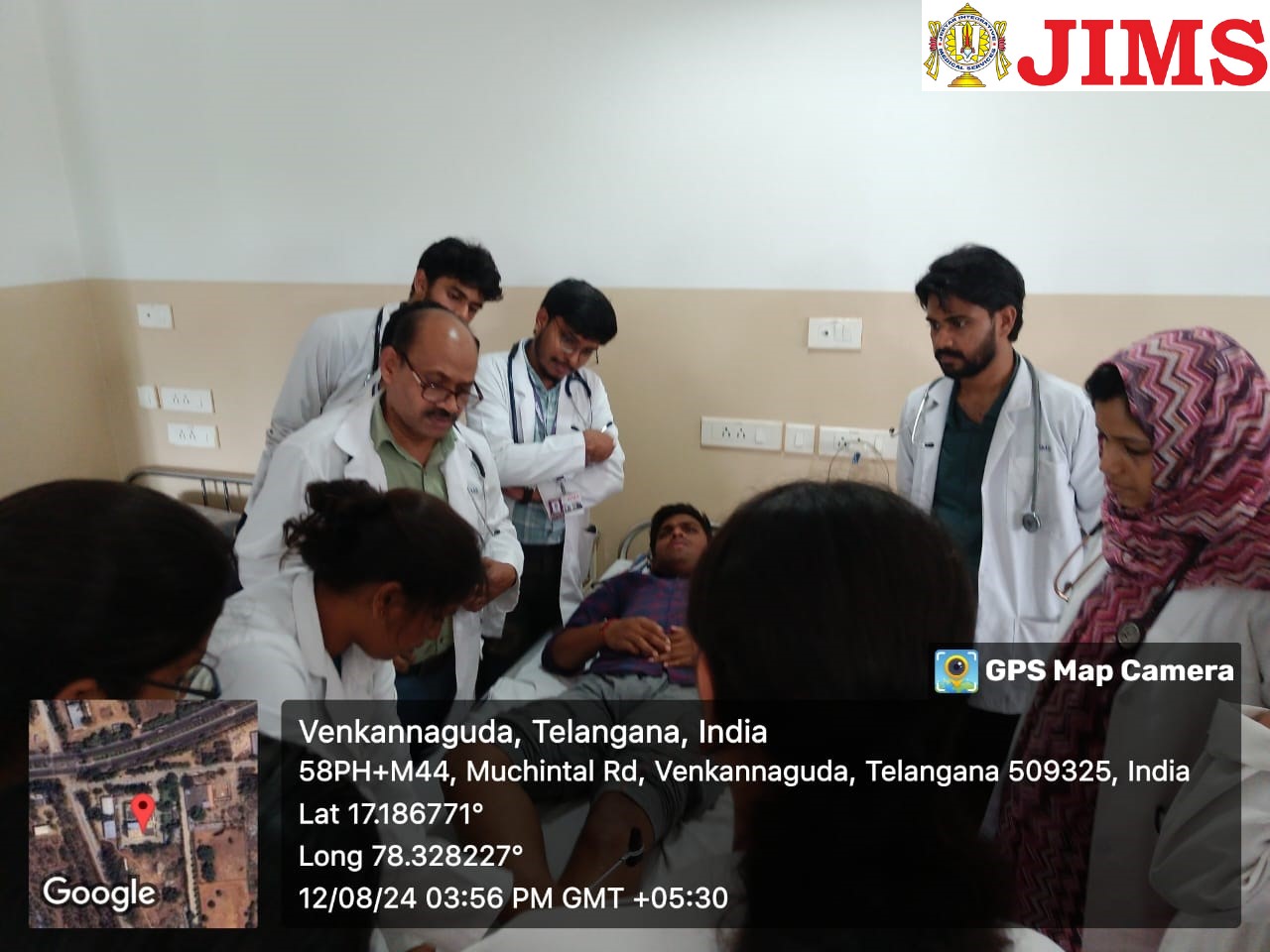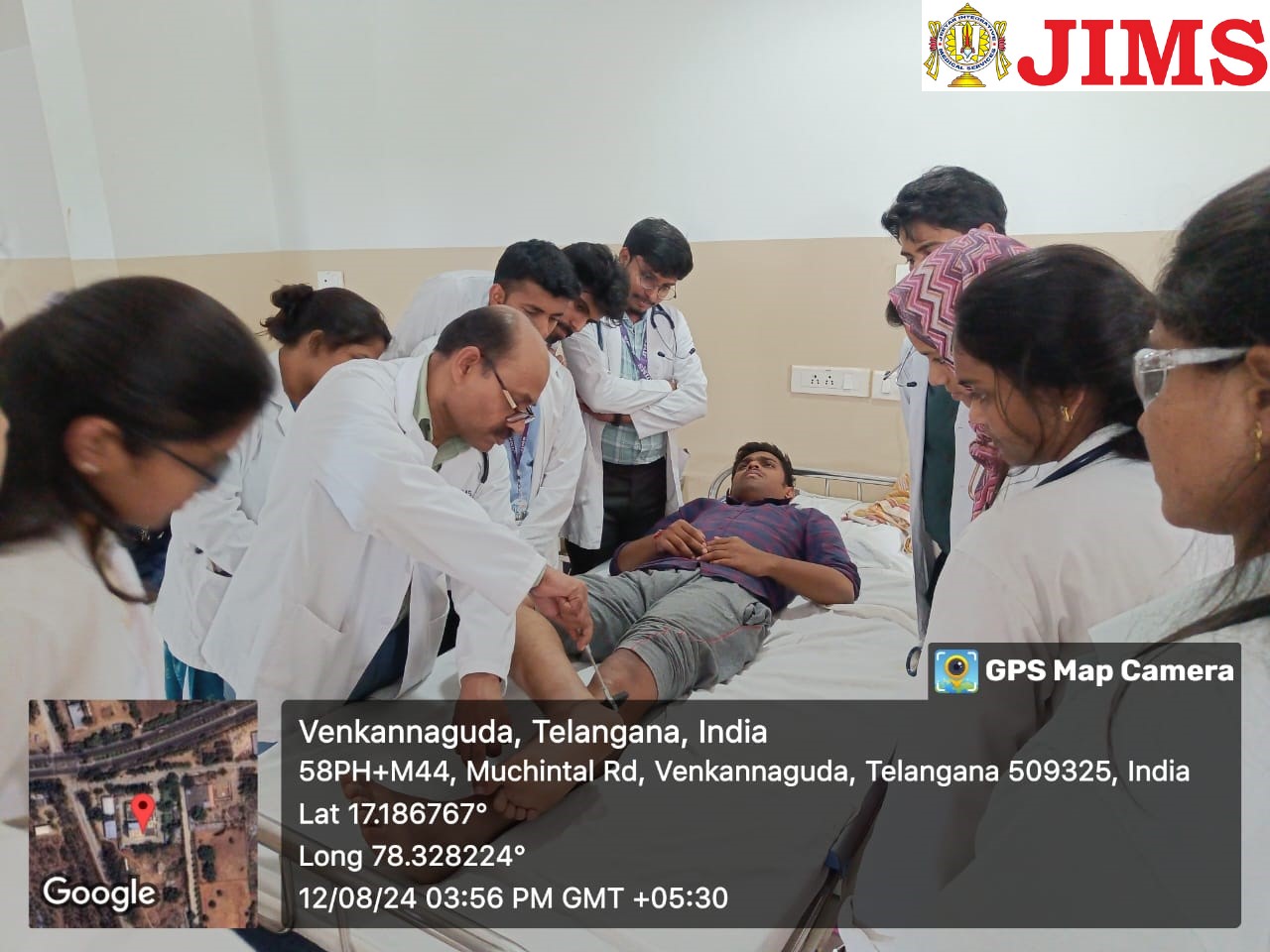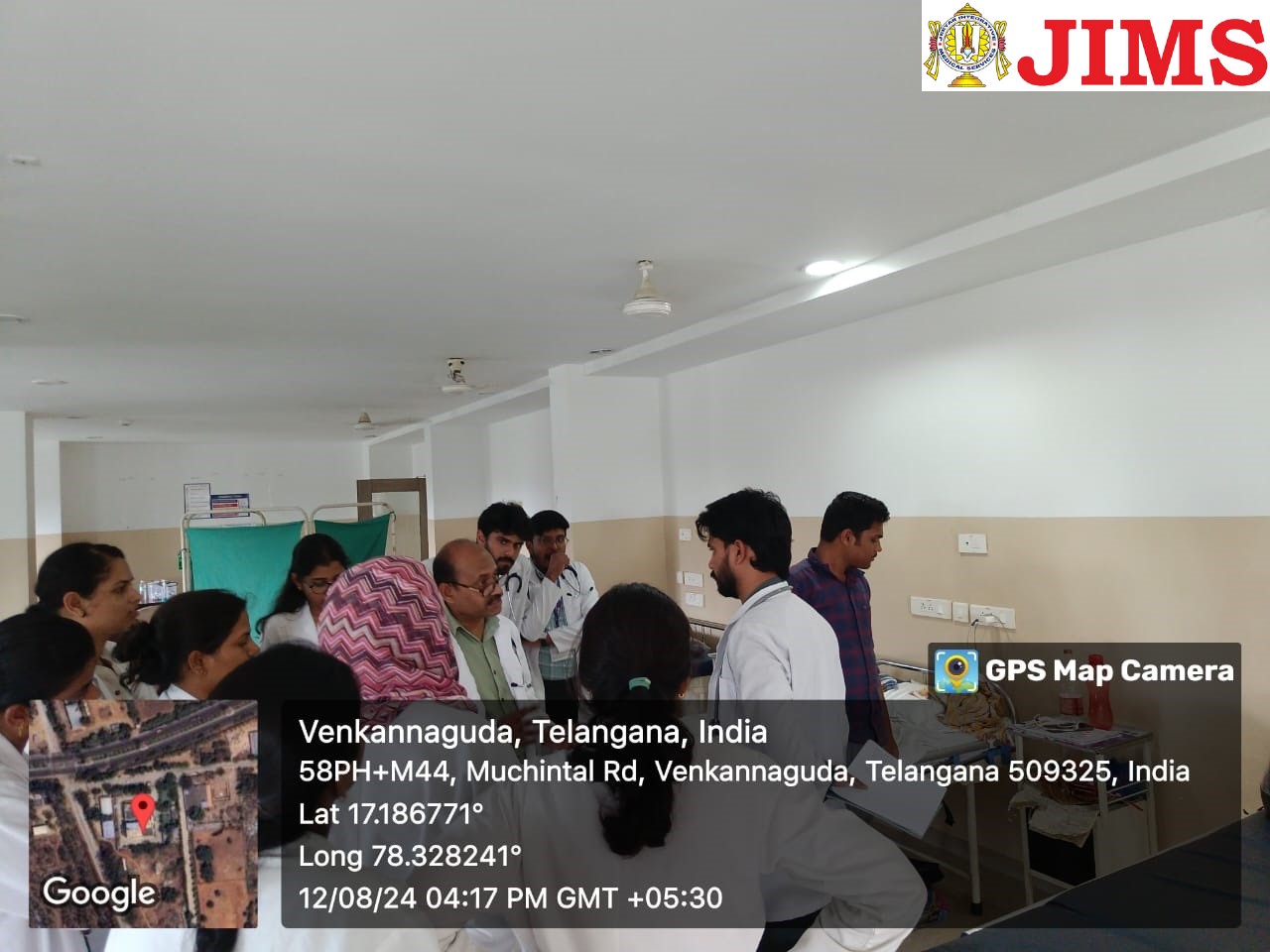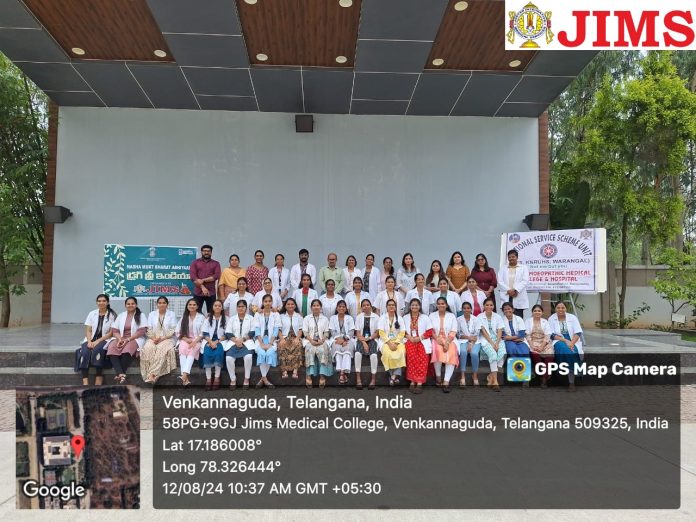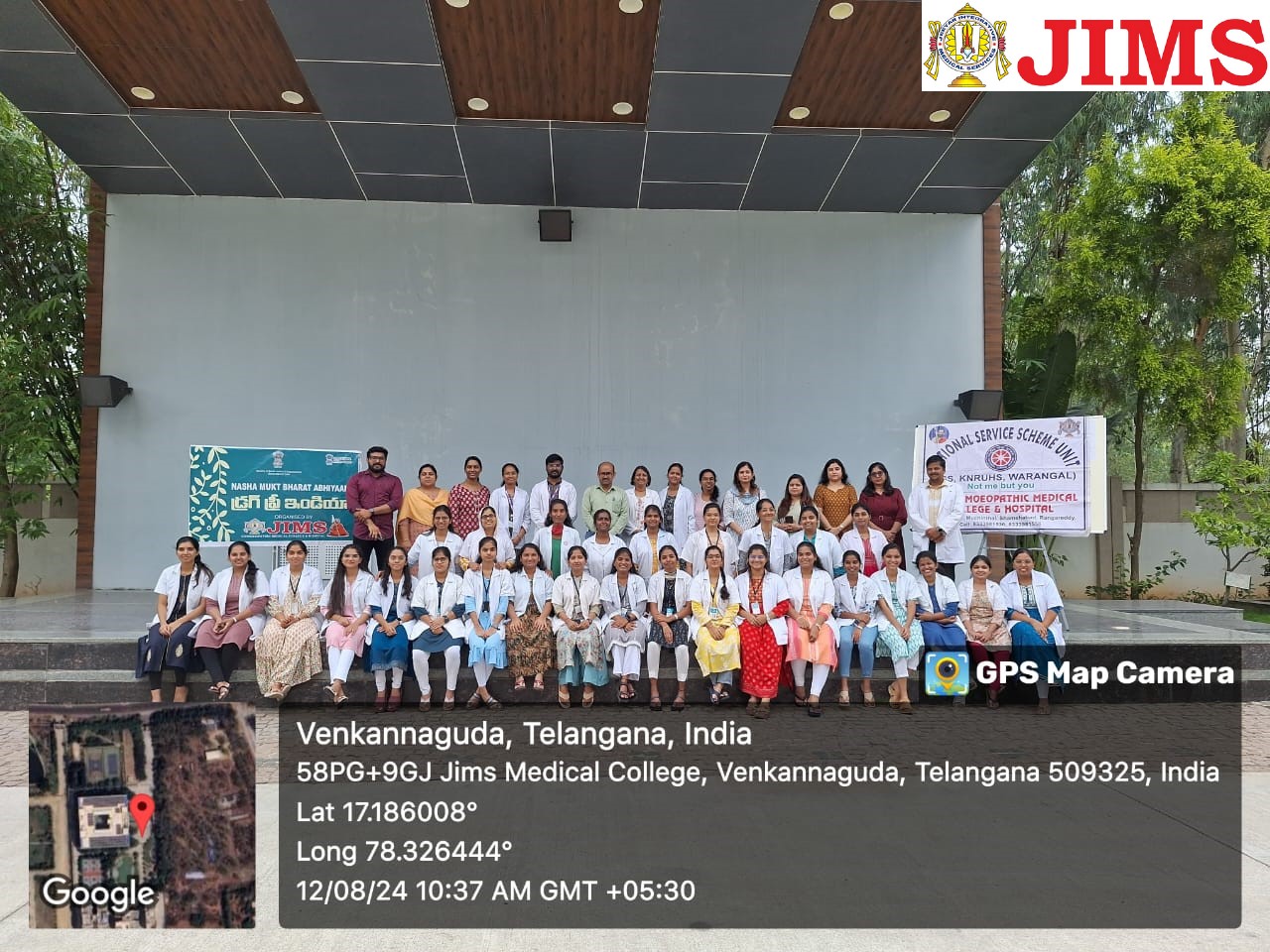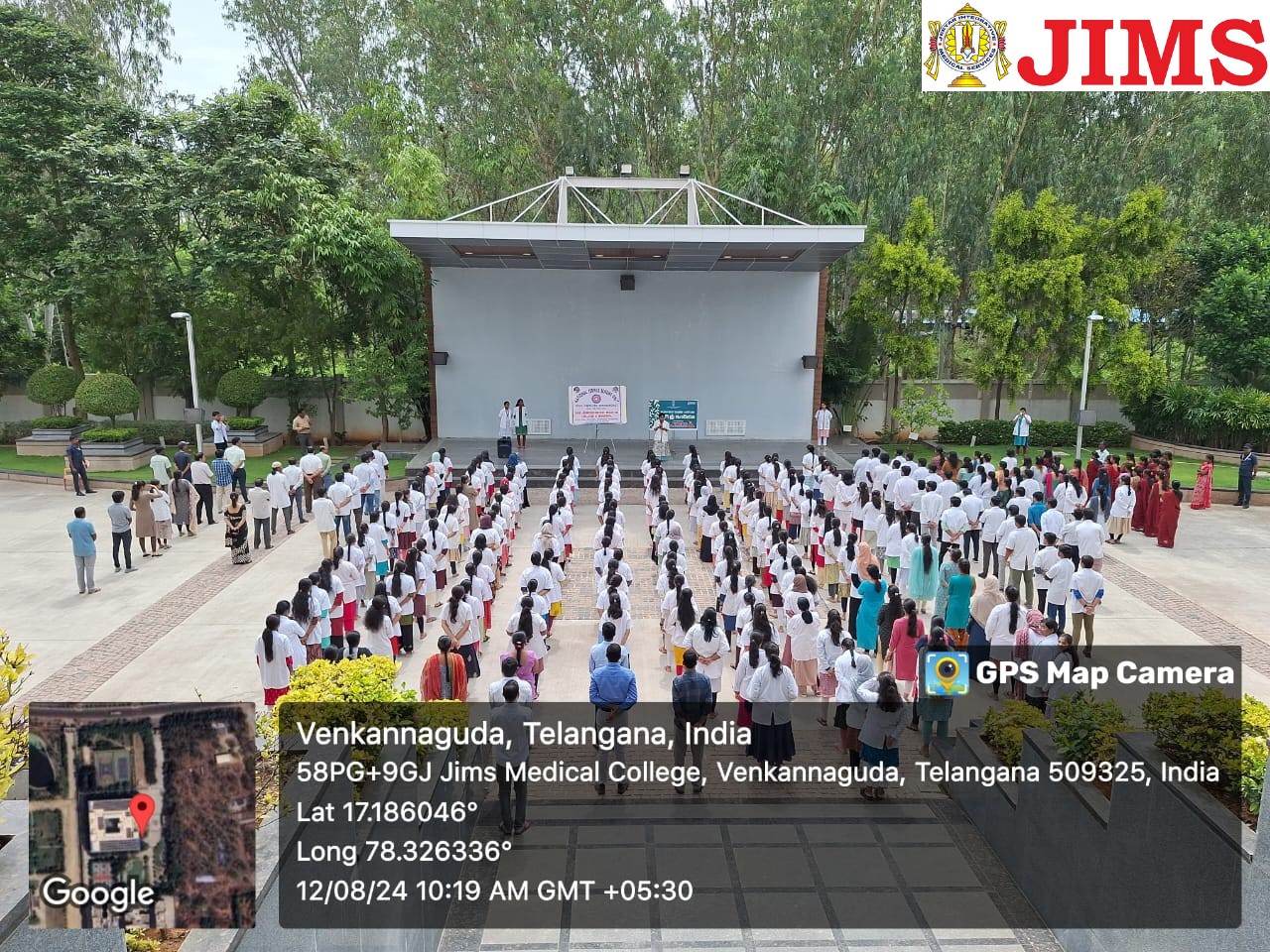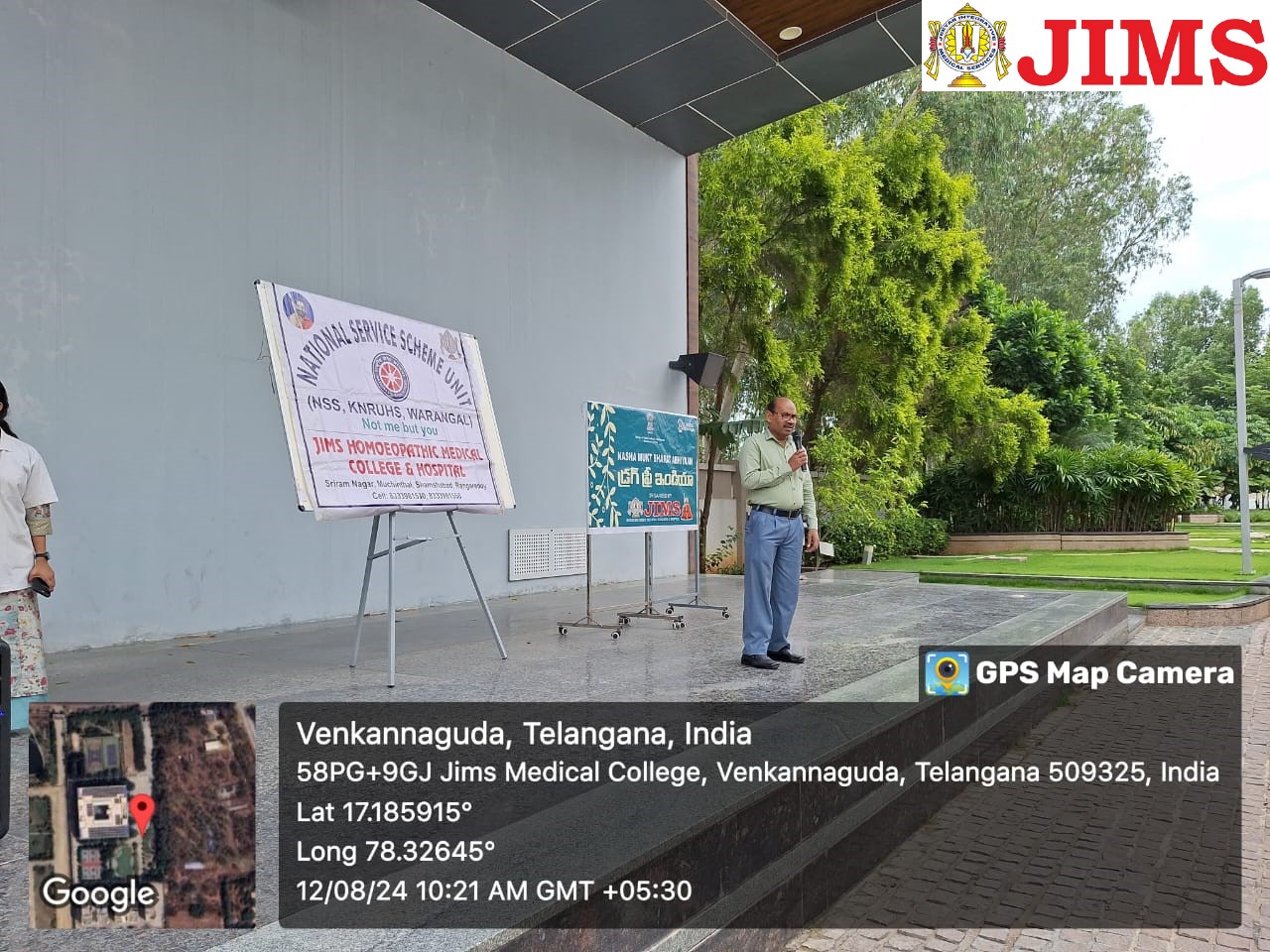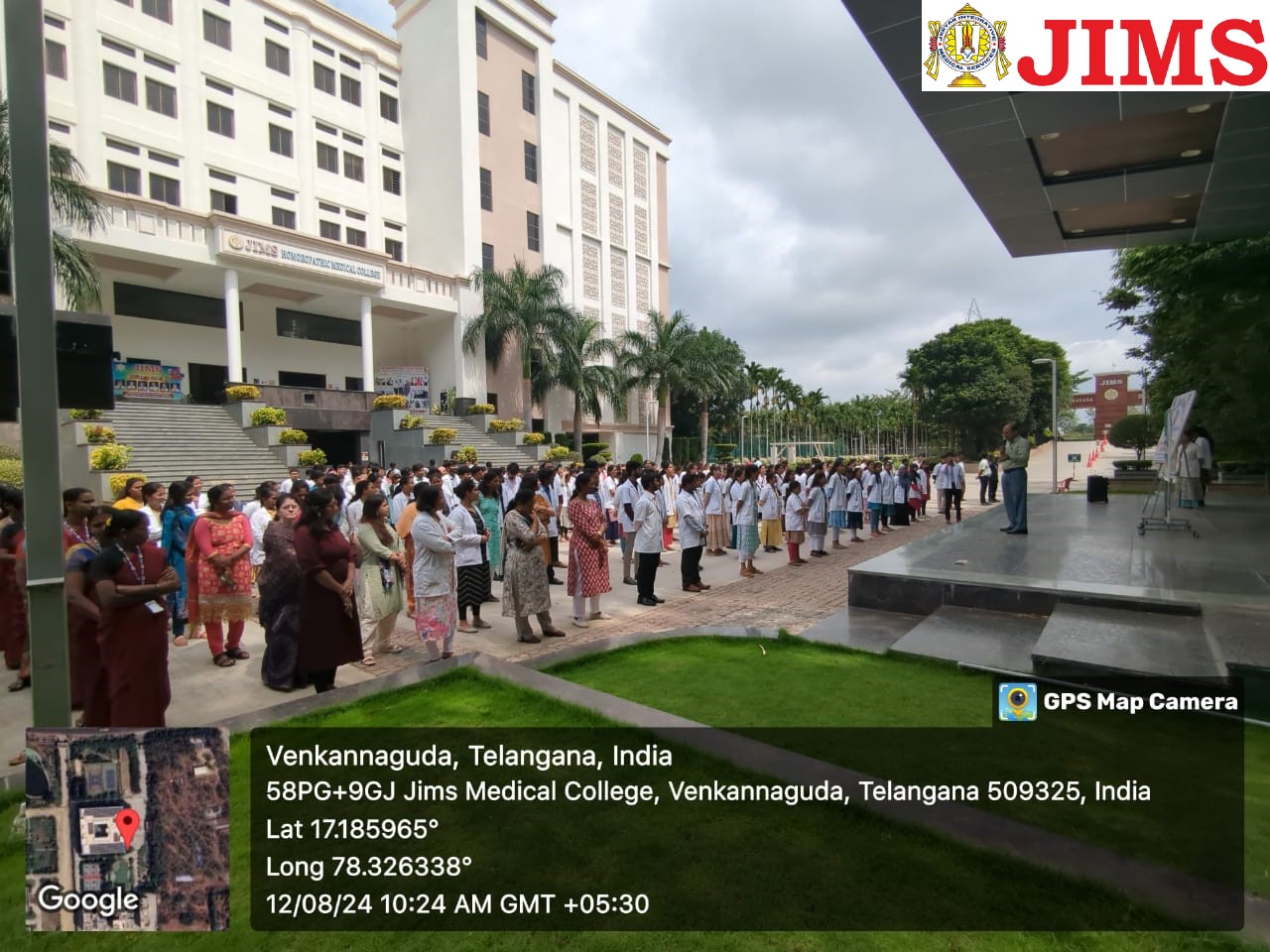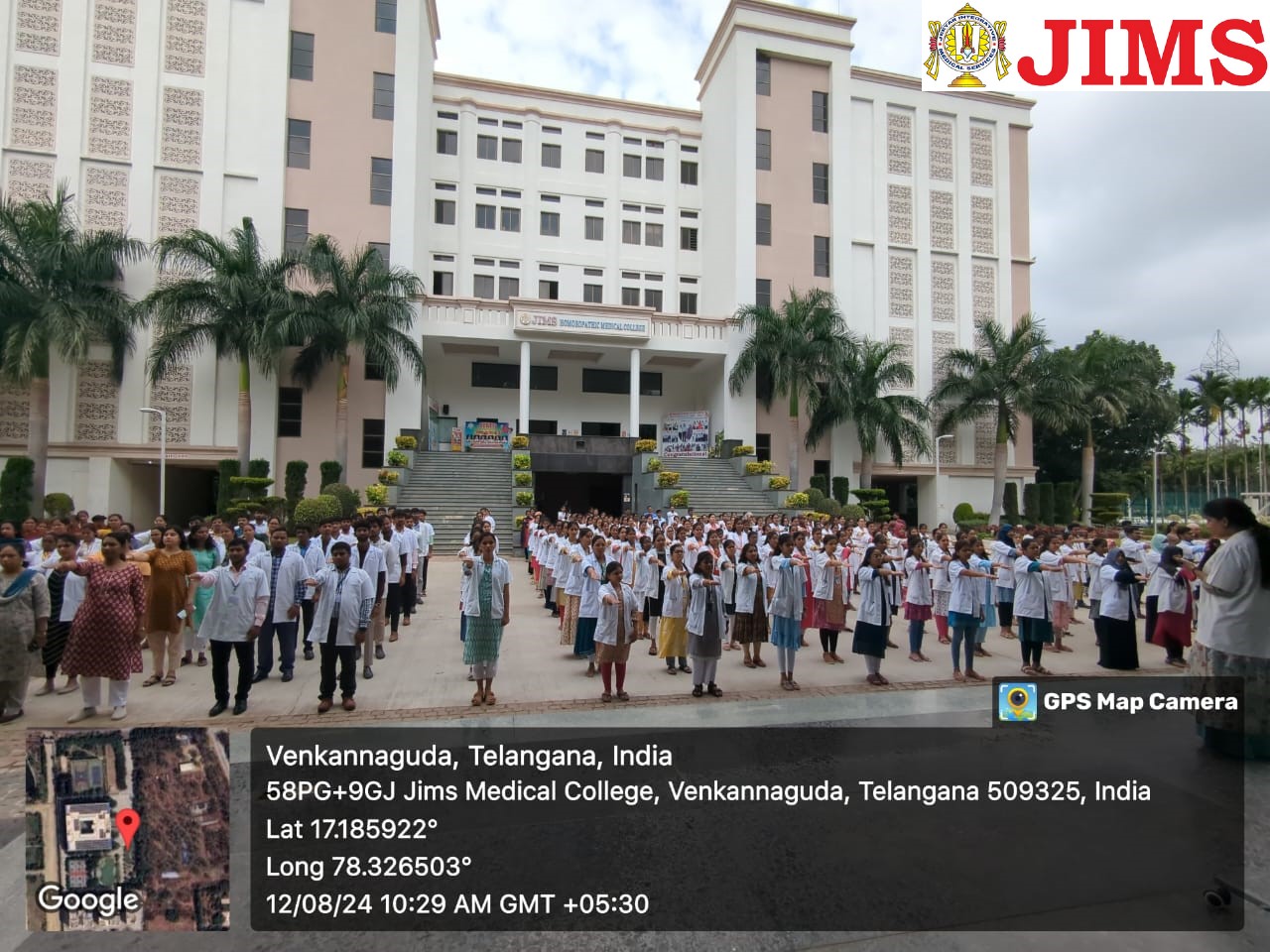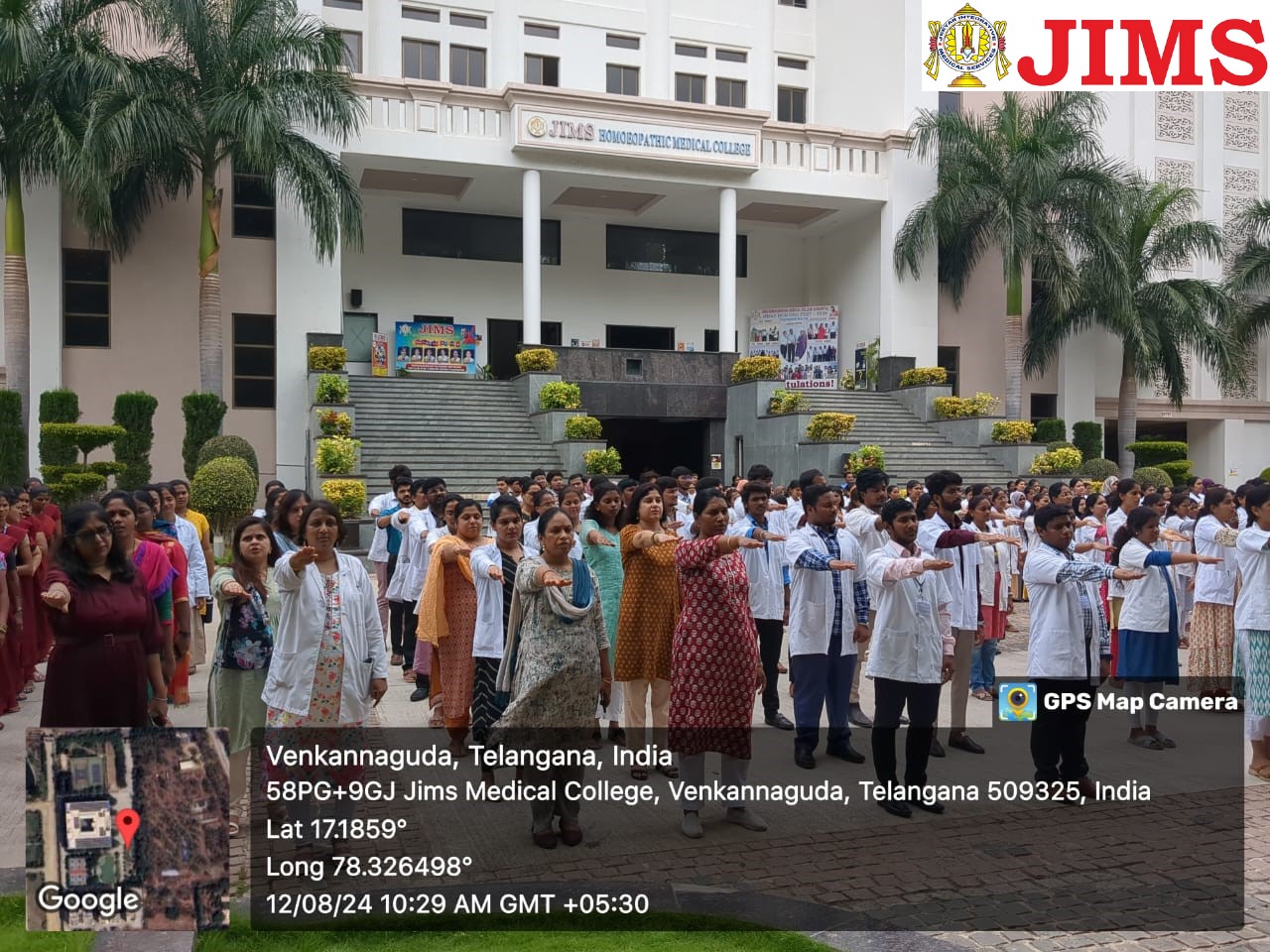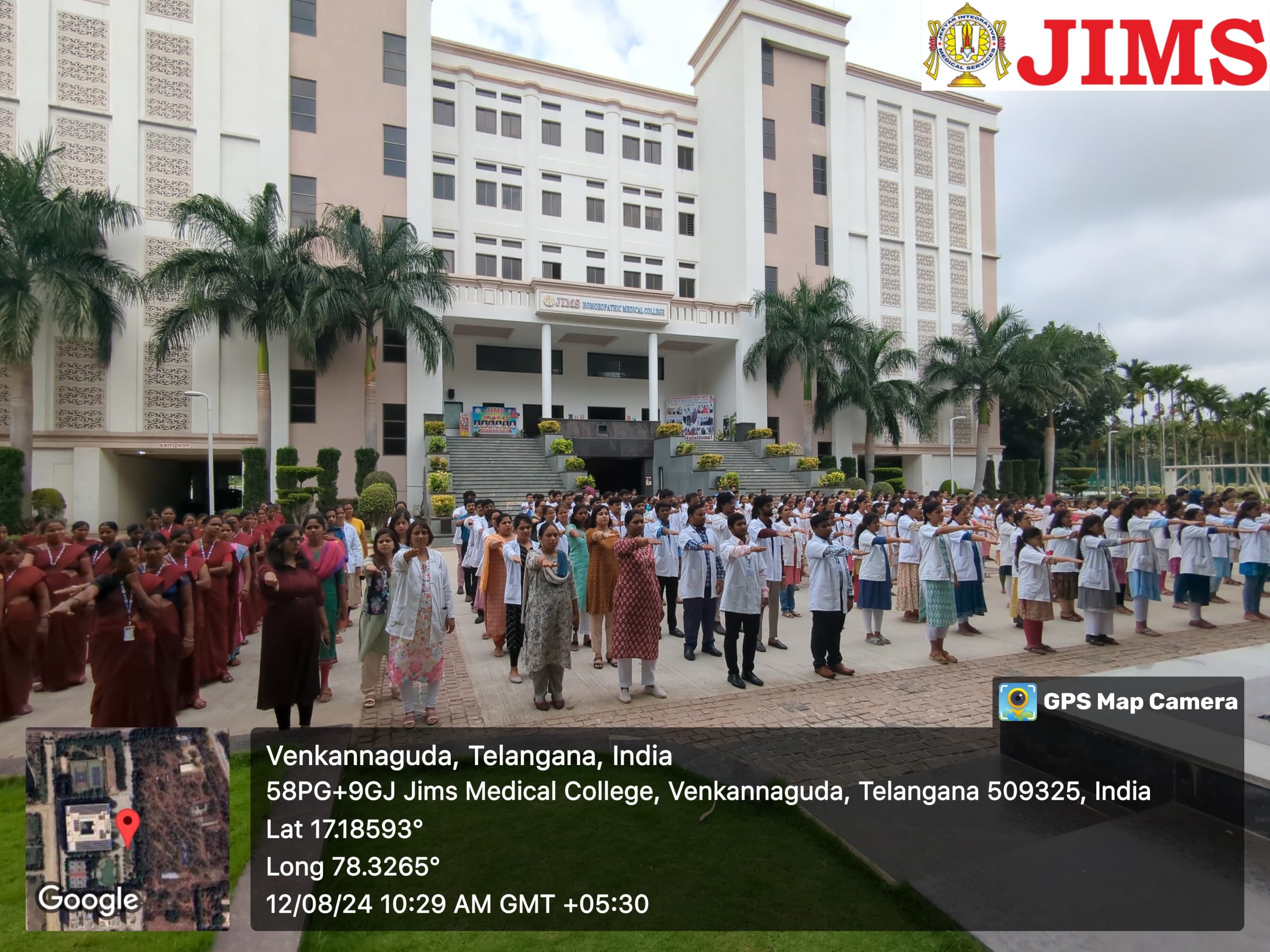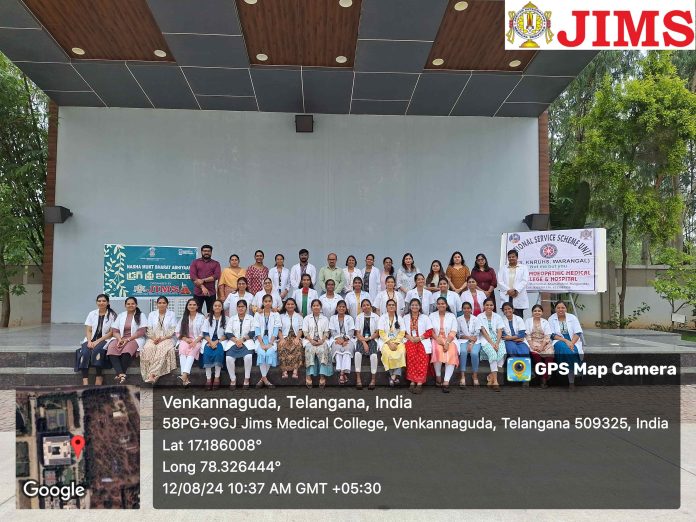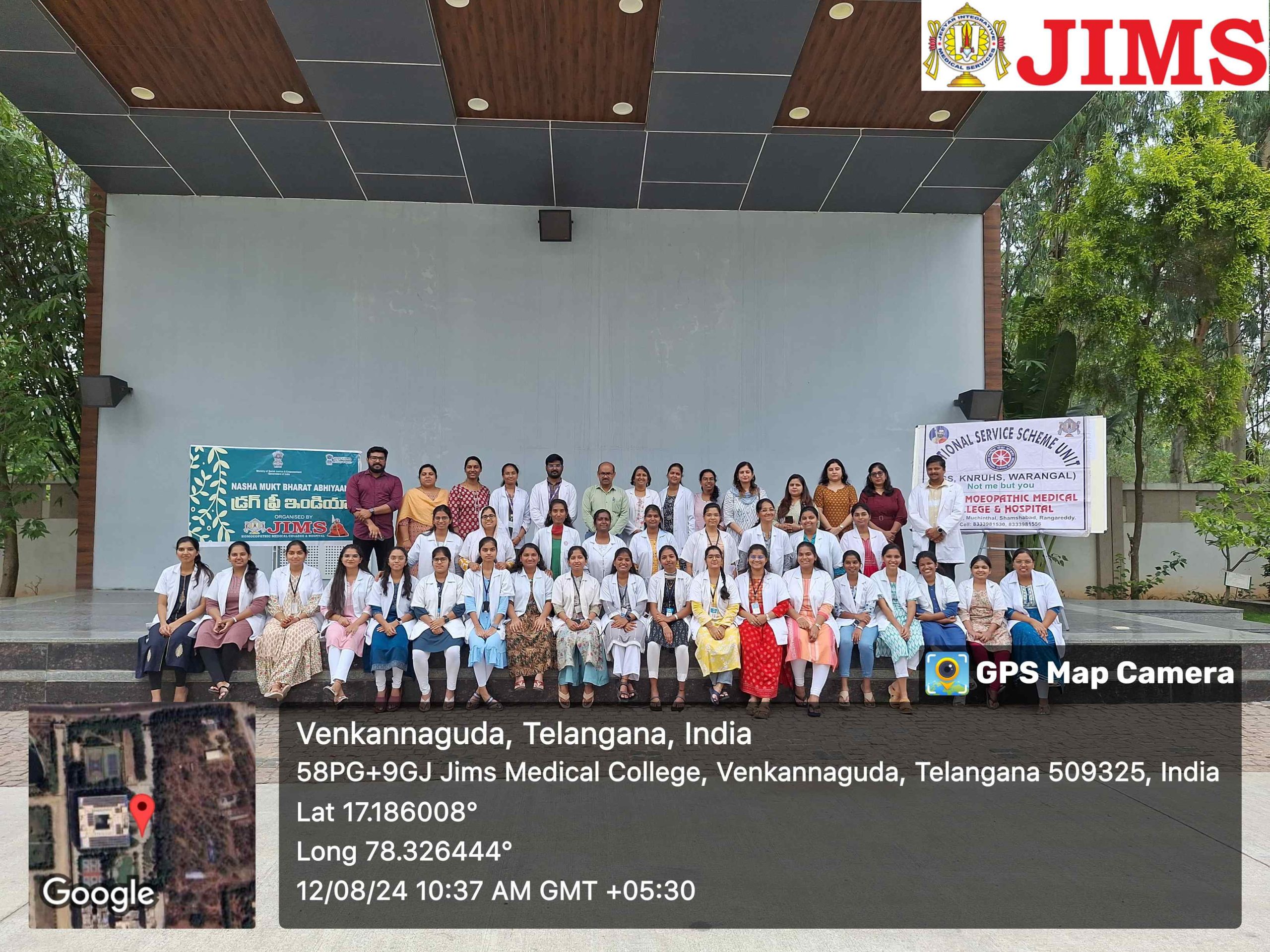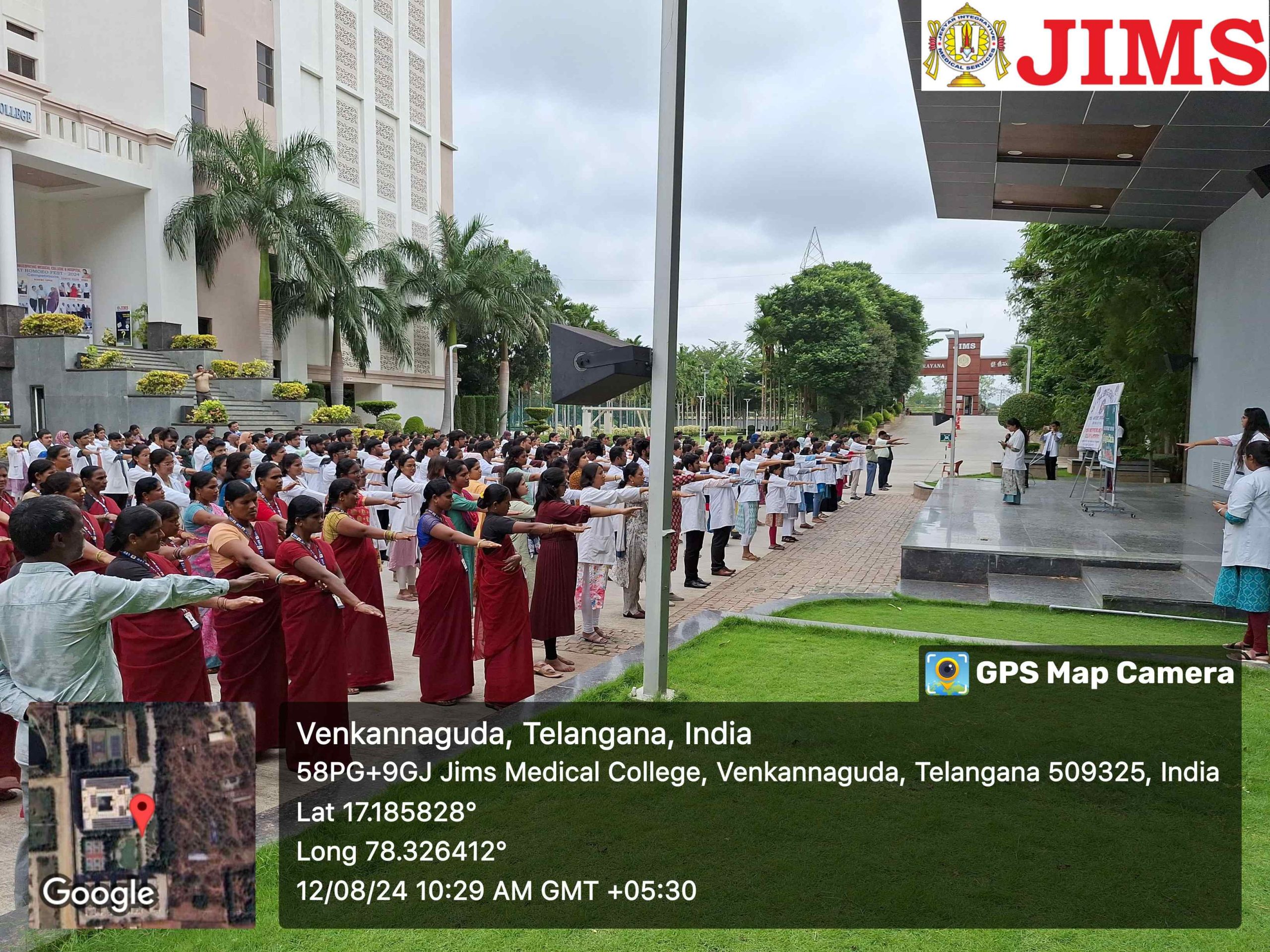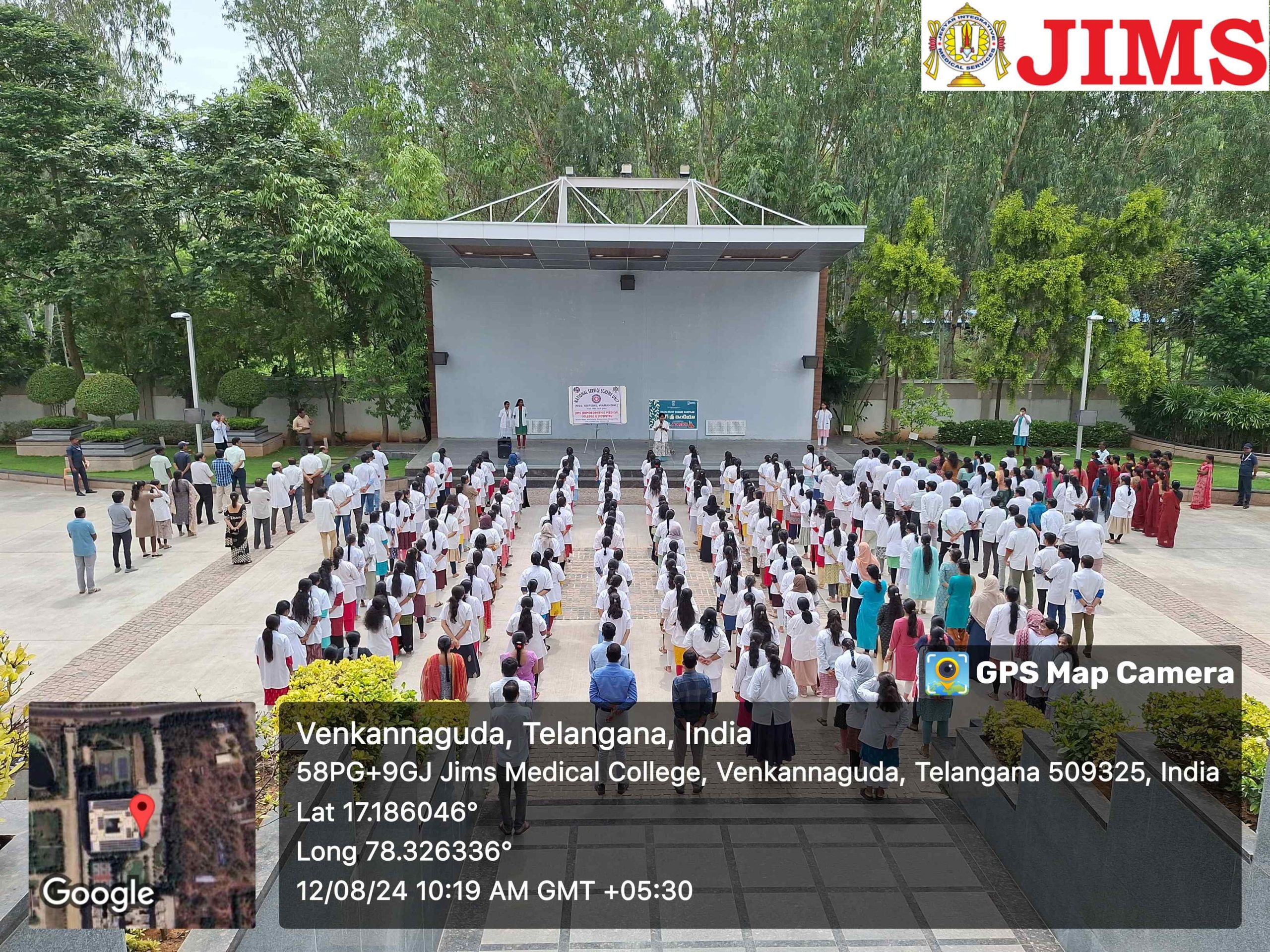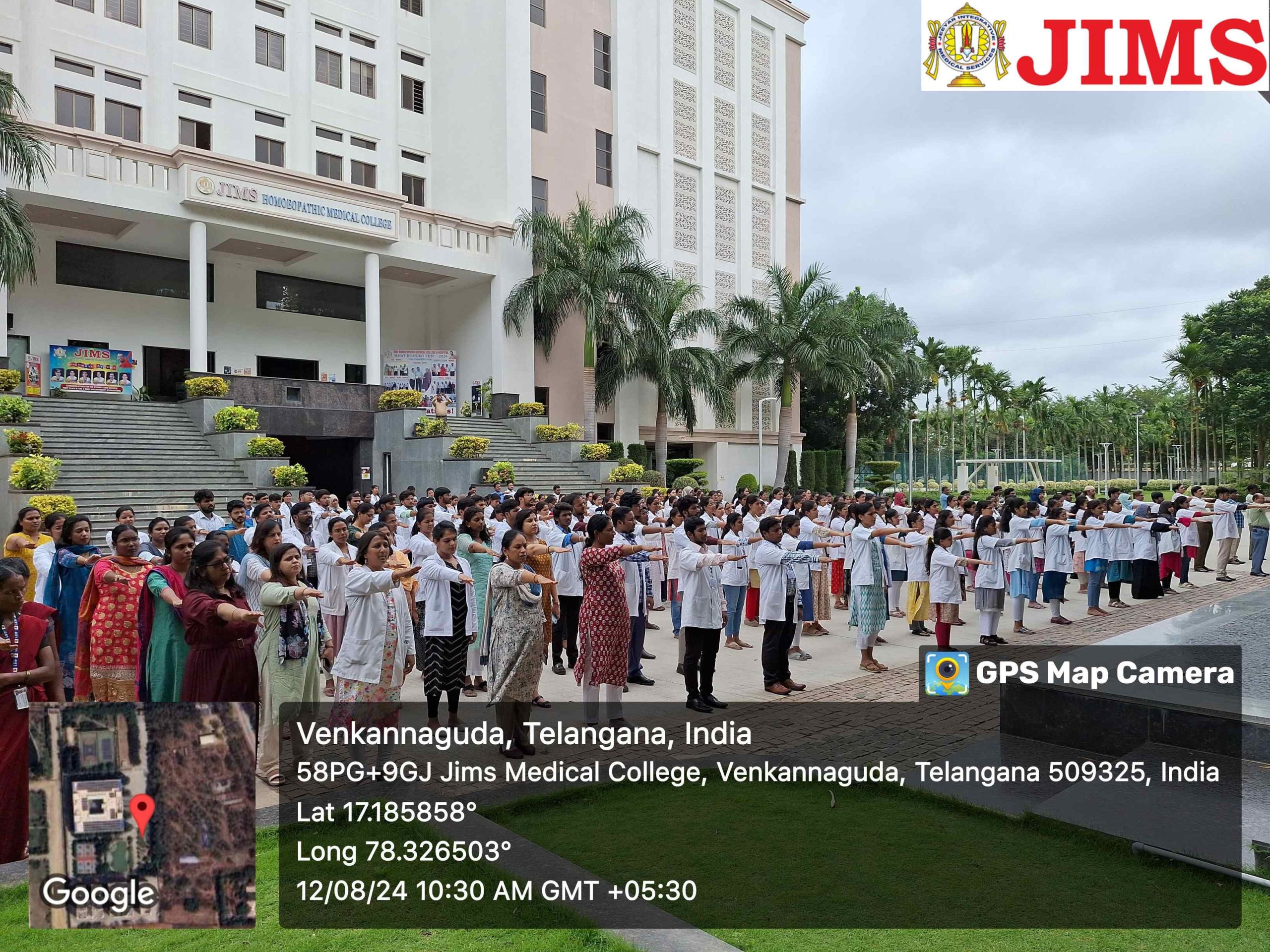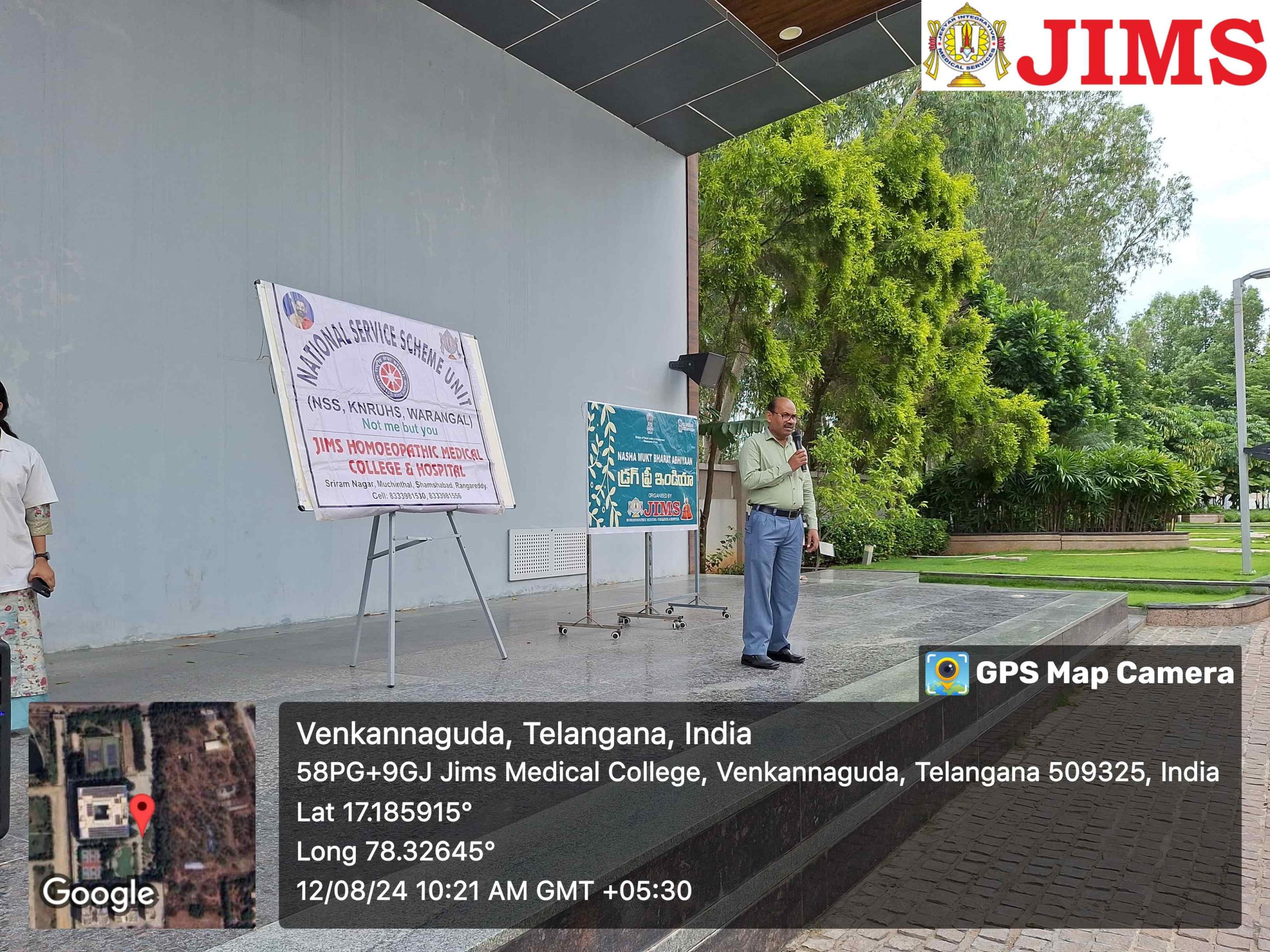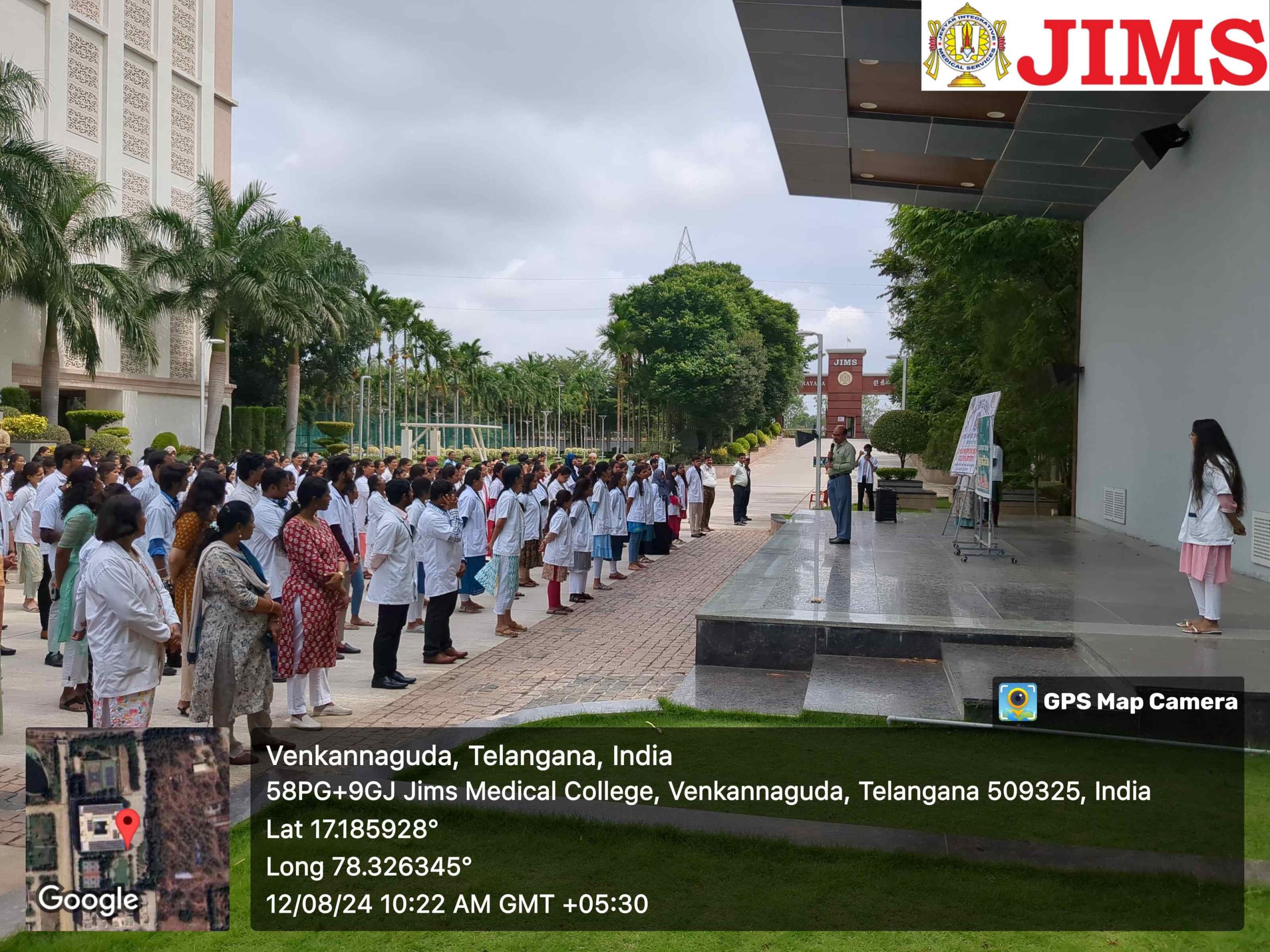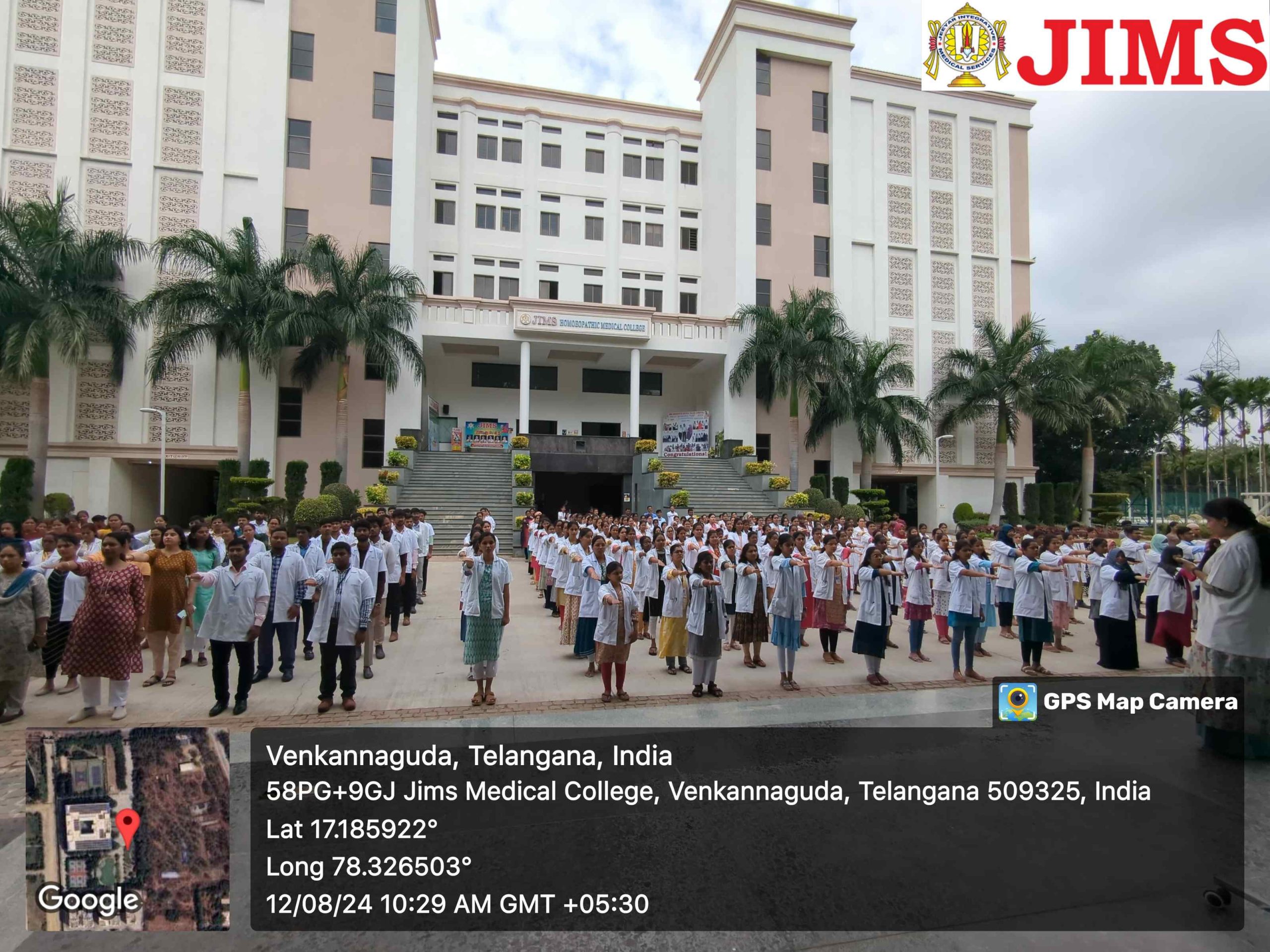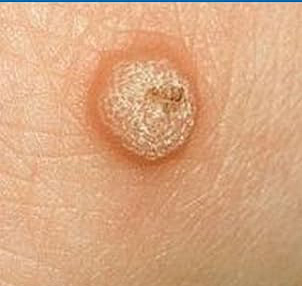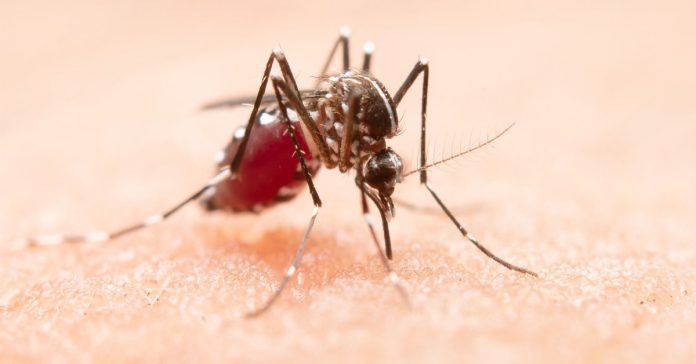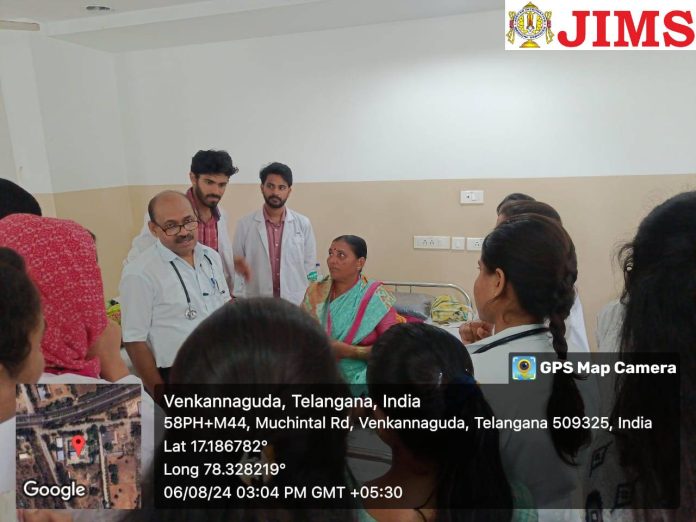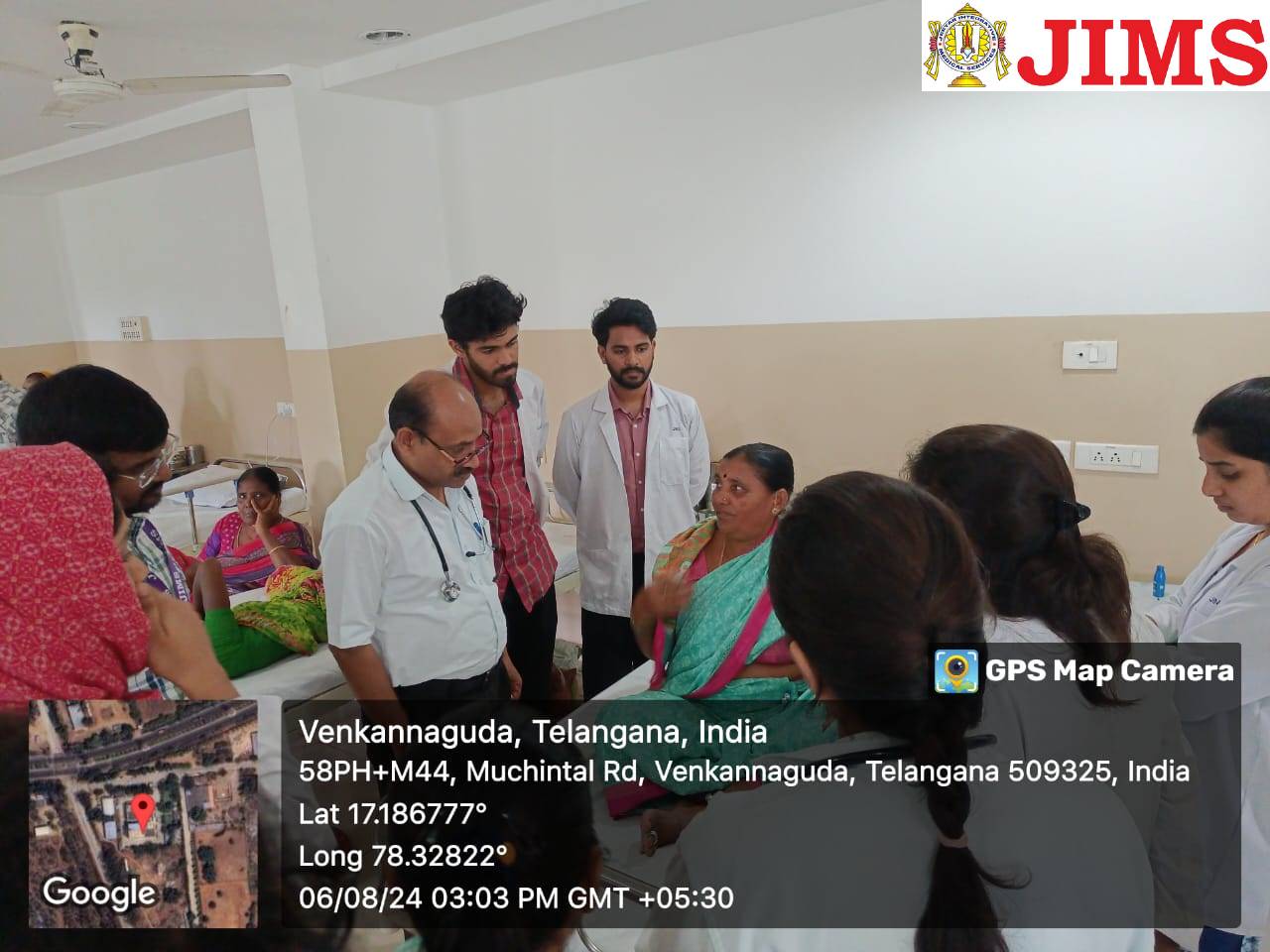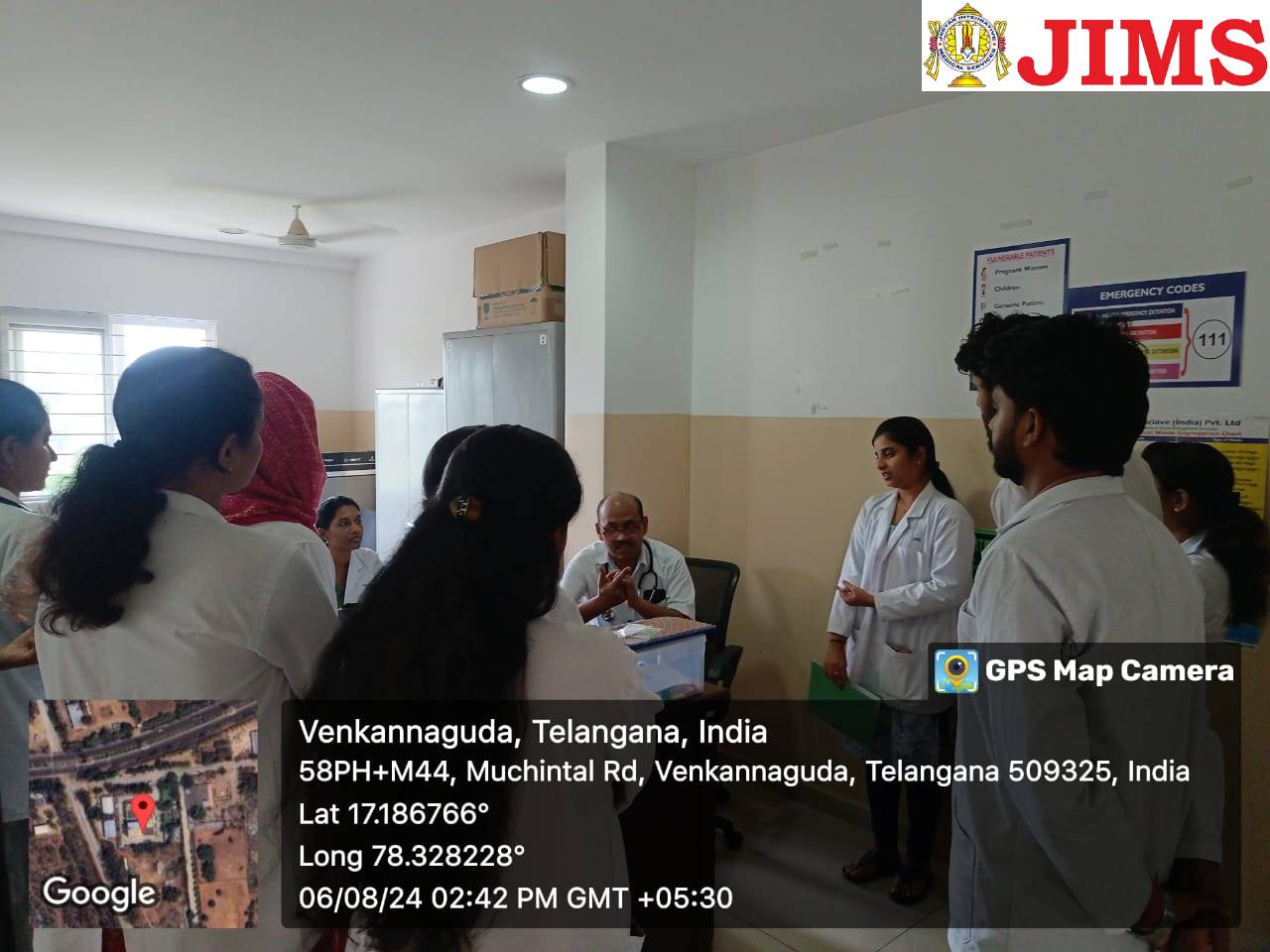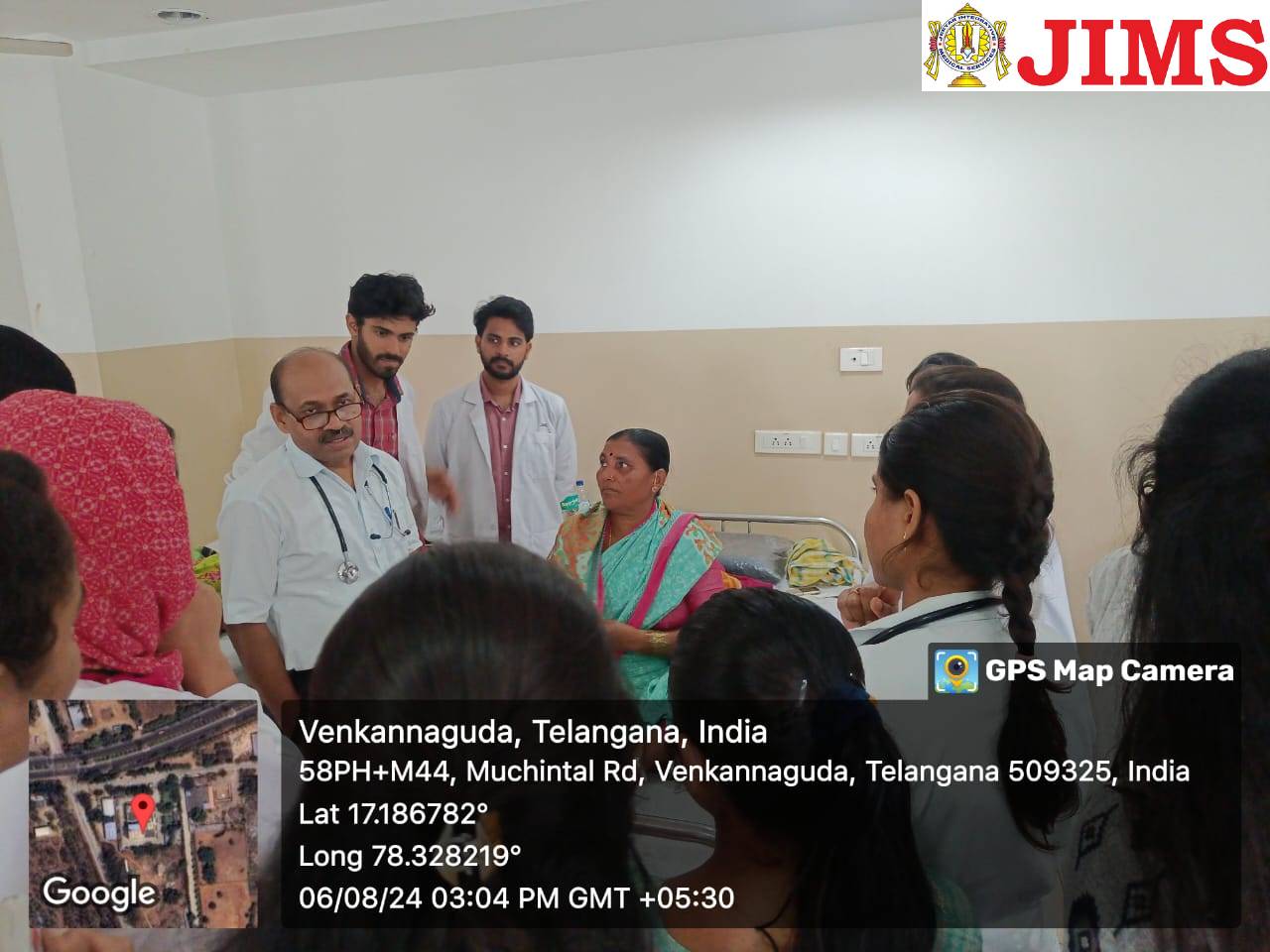Exploring a Holistic Approach for Psychiatric Illnesses through Materia Medica – Dr. Zameer Refai
We are excited to share highlights from an exceptional day of learning and exploration at JIMS Homoeopathic Medical College and Hospital! Our PG scholars had the privilege of attending two insightful guest lectures by the esteemed Dr. Zameer Refai MD[Homoeo] PhD Guide ,Professor Department of Practice of Medicine, P.P. Savani University Gujarat.
Morning Session:
Topic: Exploring a Holistic Approach for Psychiatric Illnesses through Materia Medica
Dr. Refai delved into how a holistic approach can be effectively applied to psychiatric illnesses, shedding light on the integration of Materia Medica in homeopathic practices. The session was a deep dive into enhancing psychiatric care with a holistic perspective.
Afternoon Session:
Topic: Identifying Predominant Emotions in Cases and Its Reflection in Psychiatric Diagnosis and Homeopathic Materia Medica
The afternoon was dedicated to understanding the role of predominant emotions in psychiatric cases. Dr. Refai discussed how recognizing these emotions can influence diagnosis and treatment, and how they are reflected in homeopathic Materia Medica.
Our Psychiatry department faculty members also attended, engaging in meaningful discussions and gaining fresh perspectives on integrating homeopathic methods with psychiatric care.
These sessions have undoubtedly enriched understanding and approach to holistic and homeopathic psychiatry.
Exploring Homeopathy in Duchenne Muscular Dystrophy: A Case Study
Introduction:
Duchenne Muscular Dystrophy (DMD) is a severe, X-linked genetic disorder characterized by progressive muscle degeneration and weakness. While conventional treatment strategies focus on symptom management and improving quality of life, alternative therapies such as homeopathy offer a different perspective. This case study explores the application of homeopathic principles in managing a patient with DMD.
Case Presentation:
A 19-year-old male diagnosed with DMD presented with noticeable progressive muscle weakness and increasing difficulty in performing daily activities, particularly standing up from a seated position. The patient had a history of muscle weakness dating back to early childhood, with symptoms gradually worsening over time.
Dr. Chakravarthy, a postgraduate scholar, provided a detailed account of the patient’s medical history, symptom progression, and physical examination findings. The examination revealed significant muscle atrophy, limited mobility, and emotional distress, including feelings of frustration and anxiety related to his deteriorating physical condition.
Comprehensive Homeopathic Approach:
Dr. N.C. Dhole, Head of the Practice of Medicine department, emphasized the holistic nature of homeopathic treatment. In homeopathy, each patient is considered in their entirety—physical, emotional, and mental aspects are all taken into account. The goal is to address the individual’s unique symptom profile and overall state of health, rather than just targeting specific symptoms.
Homeopathic Remedies:
In this case, the homeopathic treatment was tailored to the patient’s specific needs. The remedies selected aimed to support muscle function, address emotional distress, and enhance overall well-being. The remedies were chosen based on:
Physical Symptoms: Remedies were prescribed to help manage muscle weakness and support overall muscular health. Commonly used homeopathic remedies for muscular issues include Rhus toxicodendron and Calcarea phosphorica, which can help with muscle pain and weakness.
Emotional and Mental State: The emotional impact of DMD, including feelings of frustration and anxiety, was also considered. Remedies such as Argentum nitricum and Gelsemium were chosen to help alleviate anxiety and improve the patient’s emotional resilience.
Expected Outcomes:
The primary objective of the homeopathic treatment was to stimulate the body’s natural healing mechanisms and potentially slow the progression of the disease. While homeopathy is not a cure for DMD, the goal was to improve the patient’s quality of life by addressing both physical and emotional symptoms. Regular follow-ups were planned to assess the patient’s response to the treatment and make necessary adjustments.
Conclusion:
The case study illustrates a holistic approach to managing Duchenne Muscular Dystrophy through homeopathy. By considering the patient’s complete profile and employing remedies tailored to individual symptoms, homeopathy aims to support conventional treatments and enhance overall well-being. While more research is needed to establish the efficacy of homeopathy in treating DMD, this case demonstrates an integrative approach to addressing the complex needs of patients with chronic conditions.
Nasha Mukth Bharath Abhiyan – 2024
Final year student Ms. E. Akshita led the awareness campaign, with the theme “Viksit Bharath ka mantra, Bharath ko Nashe se Swatantra”.
Dr. N. C. Dhole Principal, addressed the audience, highlighting the alarming rise in drug abuse and discussing effective strategies to combat it.
The event included a pledge-taking ceremony with participation from the Principal, Vice Principal, PG Coordinator, all HODs, faculties, PG Scholars and students, all committing to support the drug-free cause.
The occasion concluded with the National Anthem, fostering unity and a shared commitment to a drug-free India.
The success of the event was made possible by the dedicated efforts of the NSS team, including E. Akshita, Sri Rashmi, Priya, Joy, Mounika, Akshaya, Aruva Swathi, Soumya, Anusha, and M Anusha, as well as the support from the college administration and staff. The campaign effectively raised awareness about drug abuse and motivated participants to work towards a drug-free society.
Nasha Mukt Bharat Abhiyaan – Drug Free India event
Awareness campaign, with the theme “Viksit Bharath ka mantra, Bharath ko Nashe se Swatantra” The event included a pledge-taking ceremony with participation from the Faculties, PG Scholars and students, all committing to support the drug-free cause.
Healing Warts with Homeopathy
Warts are non-cancerous growths on the skin that are quite common, caused by the DNA human papillomavirus (HPV). There are various subtypes of warts, including common warts, plantar warts, mosaic warts, plane warts, facial warts, and genital warts. These growths spread through direct contact with the virus present in living or shed skin, and are facilitated by trauma and moisture.
Common warts typically start as smooth, skin-colored papules and eventually become rough and hyperkeratotic. They are most frequently found on the hands but can also appear on the face, genitalia, and limbs, often in multiples. Plantar warts, found on the feet, have a rough surface and a horny rim, often causing pain while walking.
Homeopathic treatment offers a holistic approach to addressing warts. Homeopathy treats the individual as a whole rather than just targeting the wart itself. After a thorough case evaluation, a personalized homeopathic remedy is prescribed. These remedies aim to address the root cause of the condition, potentially preventing recurrence.
Homeopathy provides an alternative to surgical options, promoting natural removal of warts through a comprehensive treatment plan.
Dr. Harishma Purvanthi
MD Scholar
Department of Practice of Medicine
JIMSHMCH
Understanding Dengue Fever and the Role of Homeopathy in Its Management
Dengue fever, a mosquito-borne viral infection, is a significant public health concern in tropical and subtropical regions. Caused by the dengue virus and transmitted primarily by Aedes mosquitoes, dengue fever presents with a range of symptoms, from mild fever to severe conditions such as dengue hemorrhagic fever (DHF) and dengue shock syndrome (DSS).
Dengue fever typically begins with a sudden high fever, severe headache, retro-orbital pain (pain behind the eyes), joint and muscle pain (often referred to as “breakbone fever”), rash, and mild bleeding manifestations like gum bleeding or easy bruising. The illness can progress to more severe forms, characterized by plasma leakage, bleeding, and organ impairment. Dengue hemorrhagic fever and dengue shock syndrome are life-threatening and require prompt medical intervention.
Several homeopathic remedies may be considered for managing dengue fever symptoms, based on the patient’s individual presentation:
Belladonna: This remedy is often used when the patient presents with a high fever, sudden onset, and intense pain. It is particularly useful if the fever is accompanied by a flushed face and sensitivity to light and noise.
Bryonia: Indicated for patients experiencing severe joint and muscle pain, Bryonia may be helpful if the pain is aggravated by movement and accompanied by a dry cough and irritability.
Eupatorium perfoliatum: This remedy is traditionally used for dengue when there is intense bone pain, resembling the sensation of bones being broken, along with high fever and aching.
Rhus toxicodendron: Useful for patients with joint pain that worsens with rest and improves with movement, Rhus tox may also be beneficial for those experiencing a rash or itching.
Dr. SANTOSH KUMAR
PROFESSOR &HOD
DEPARTMENT OF PHYSIOLOGY AND BIOCHEMISTRY.
Bedside Learning at Its Best!
In an engaging bedside session for postgraduate students, Dr. Hima Sameera PG Scholar, presented a clinical case, guiding the students through the case discussion and hands-on patient examination, always respecting patient consent and privacy.
Dr. N.C. Dhole, Professor Head of the Department of Practice of Medicine, provided an in-depth understanding of Stress Incontinence, covering everything from its definition and diagnosis to management and treatment. The session included a comprehensive overview of Homoeopathic Management for this common condition.
The integration of real-life case studies and direct patient interactions greatly enhanced the learning experience, making it both practical and valuable.

